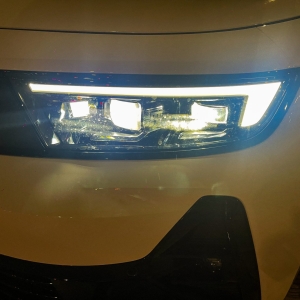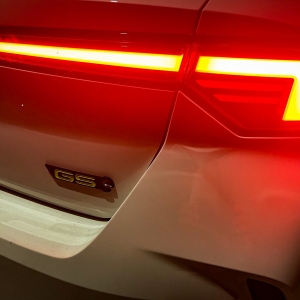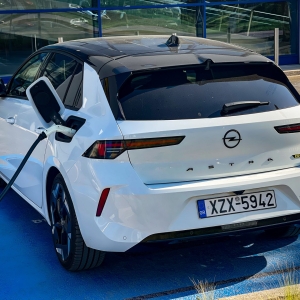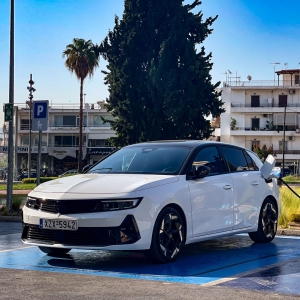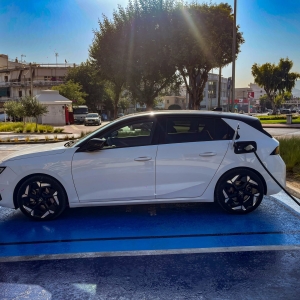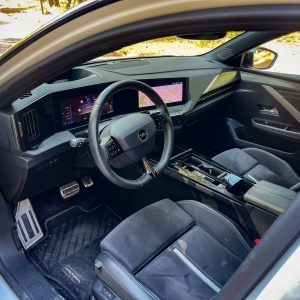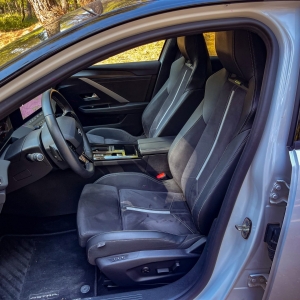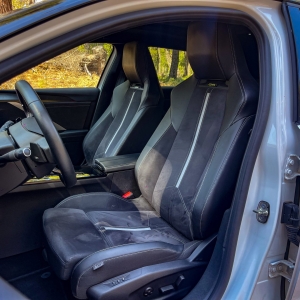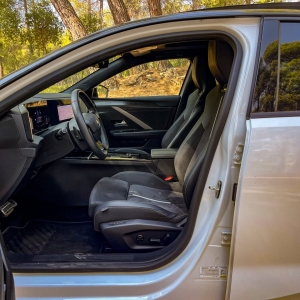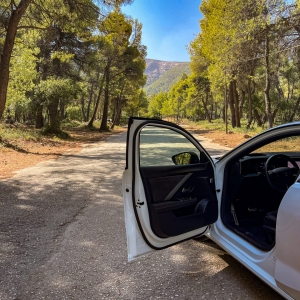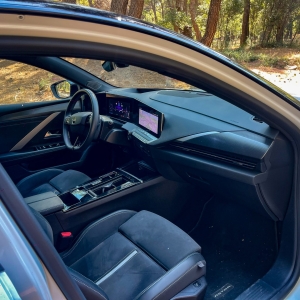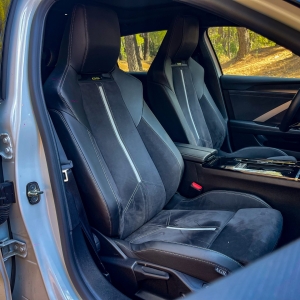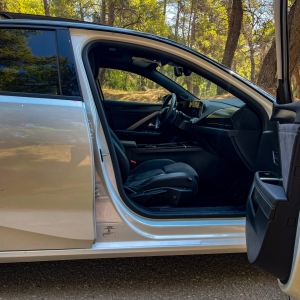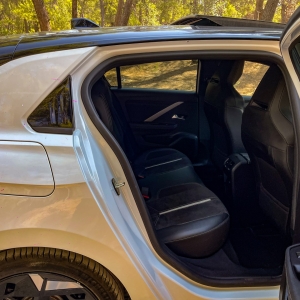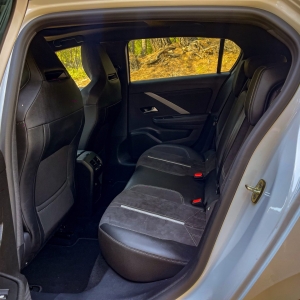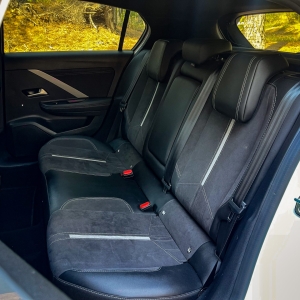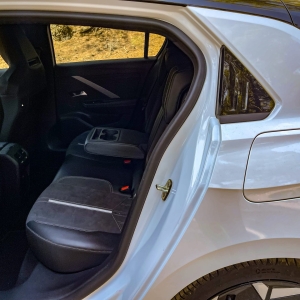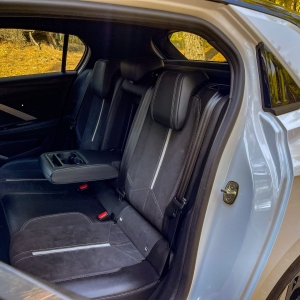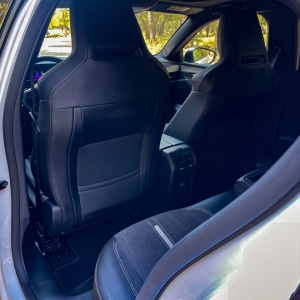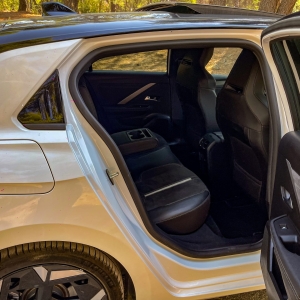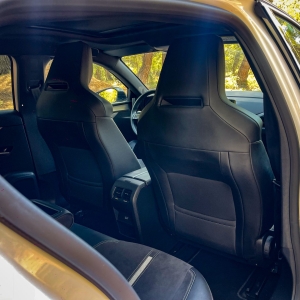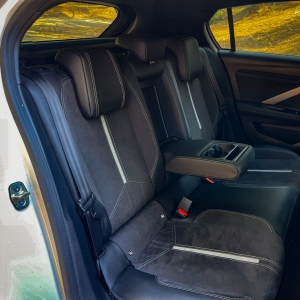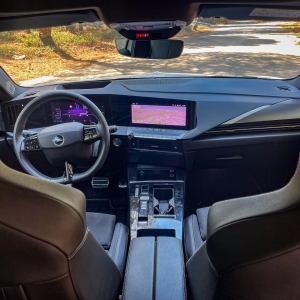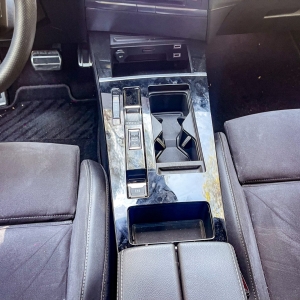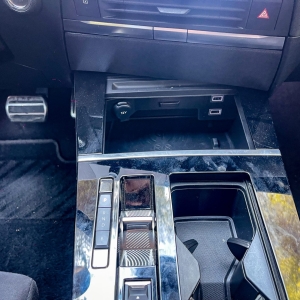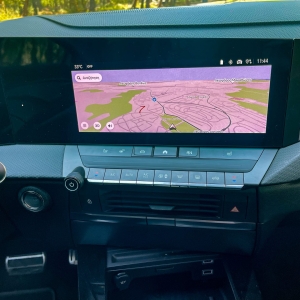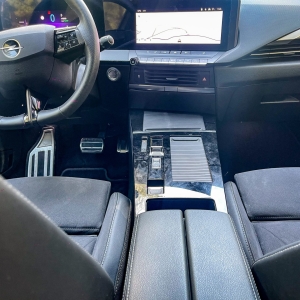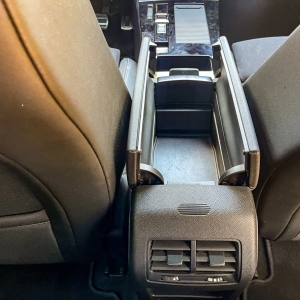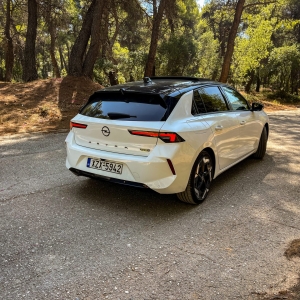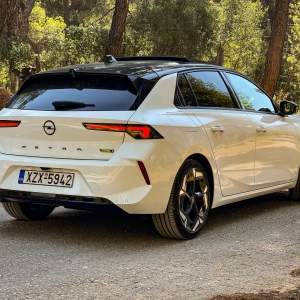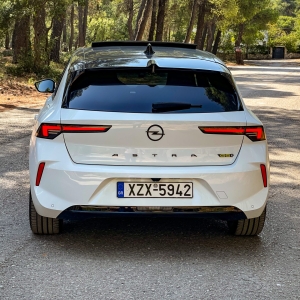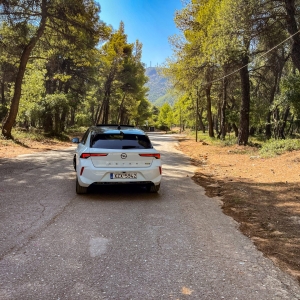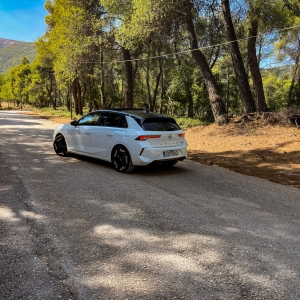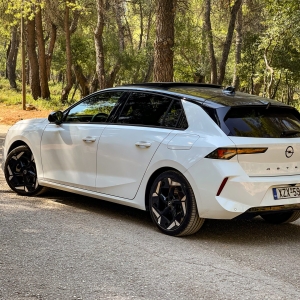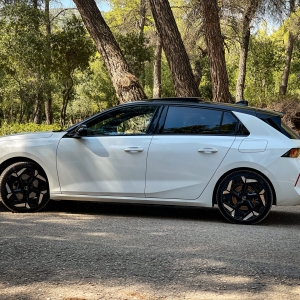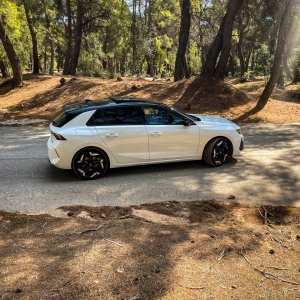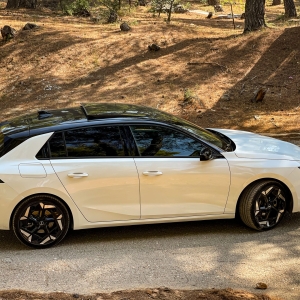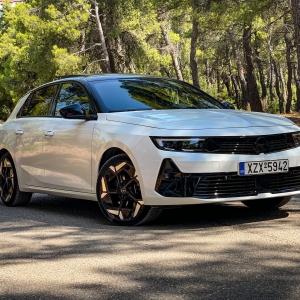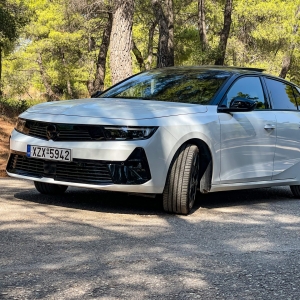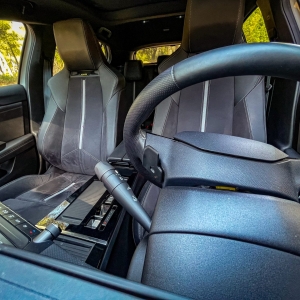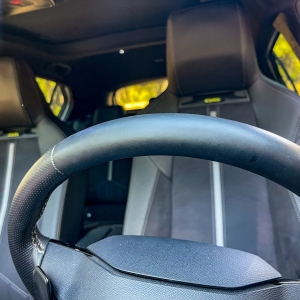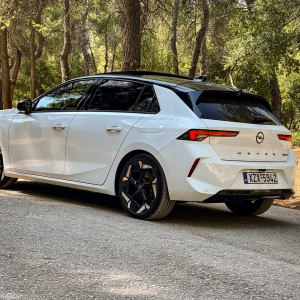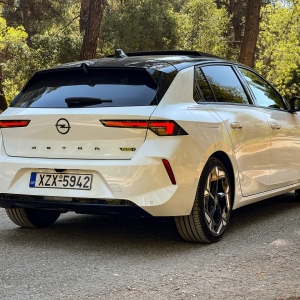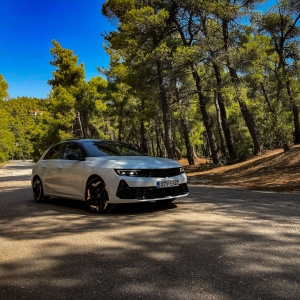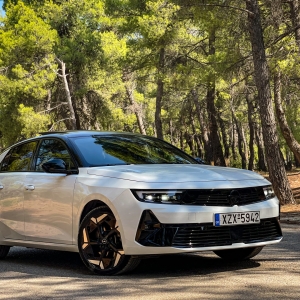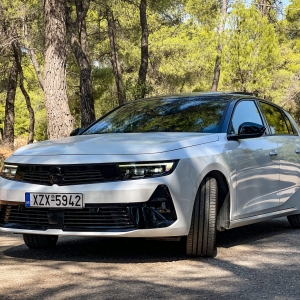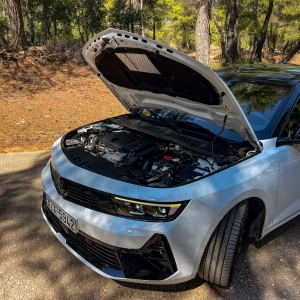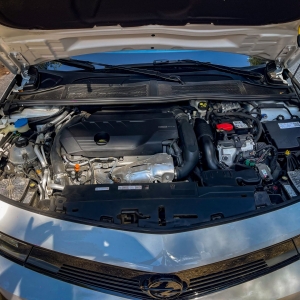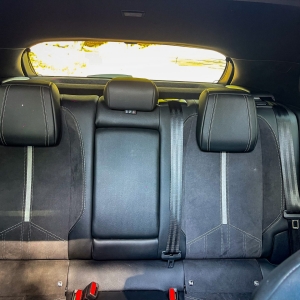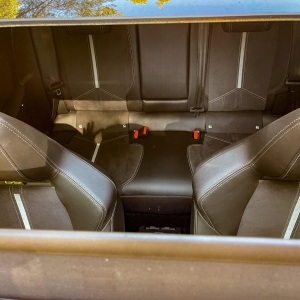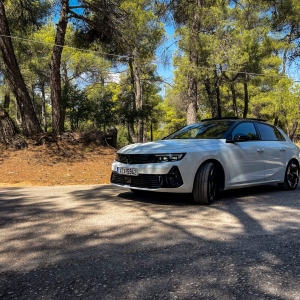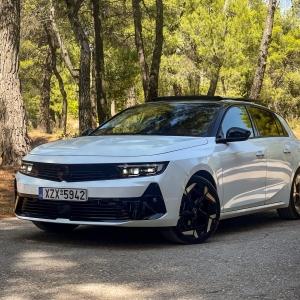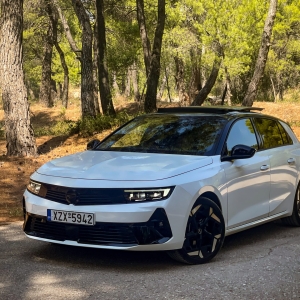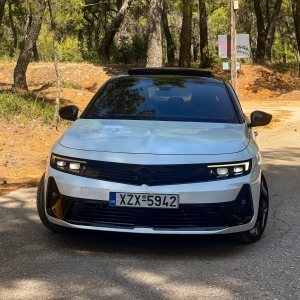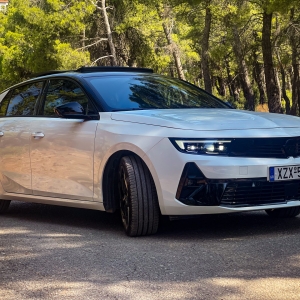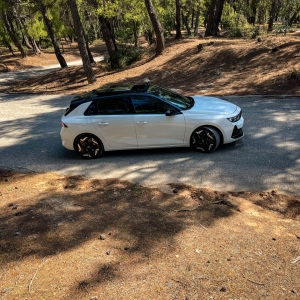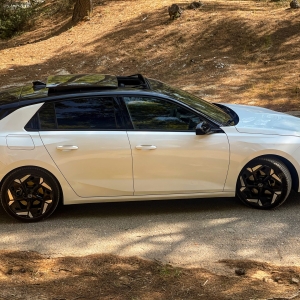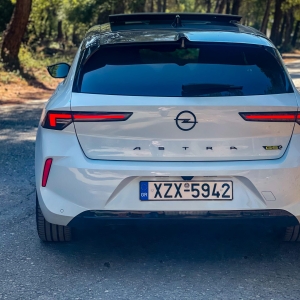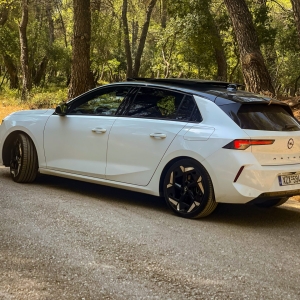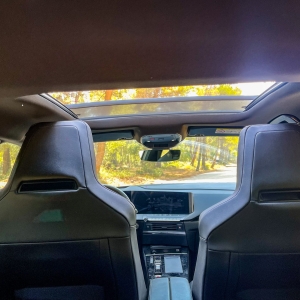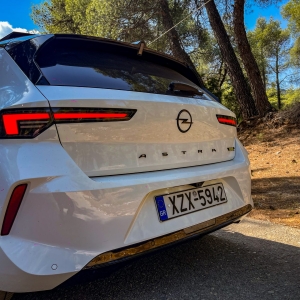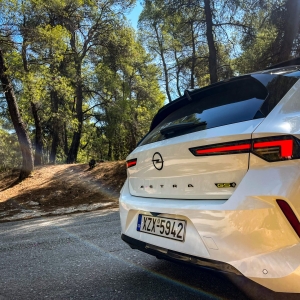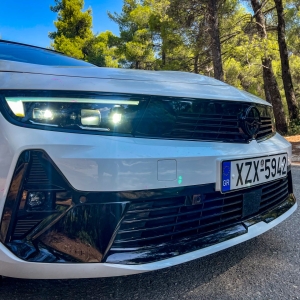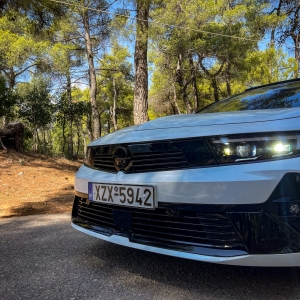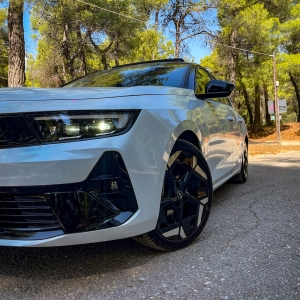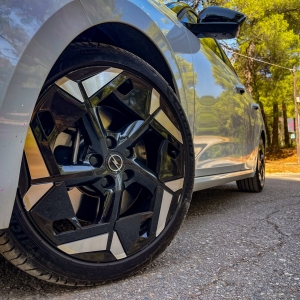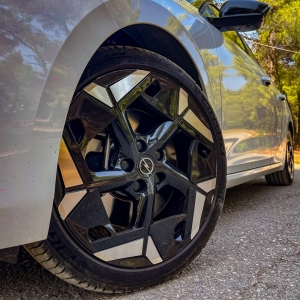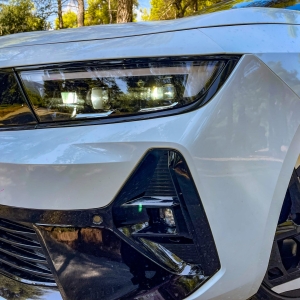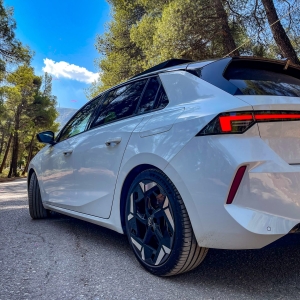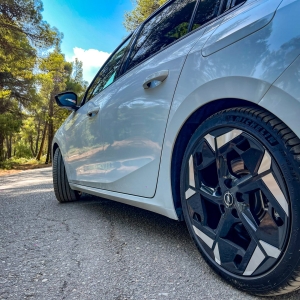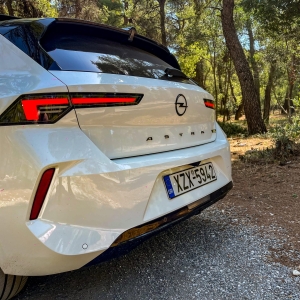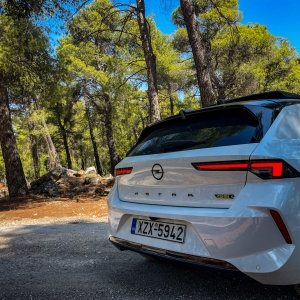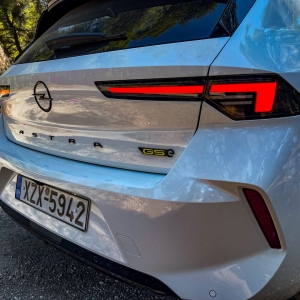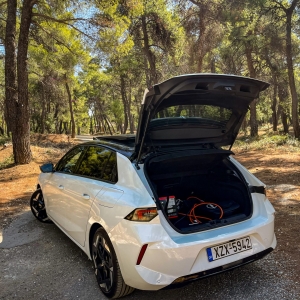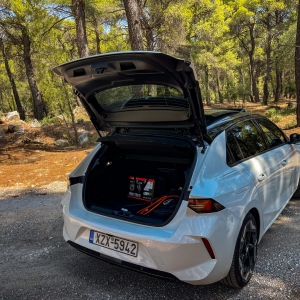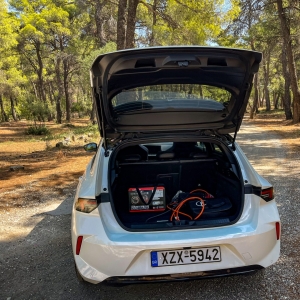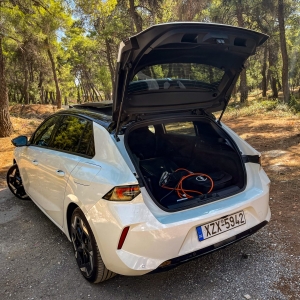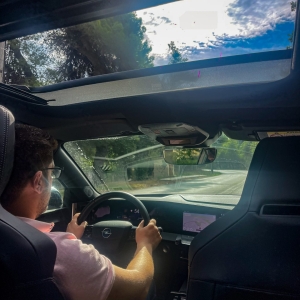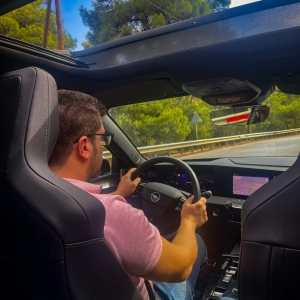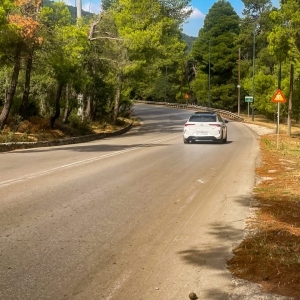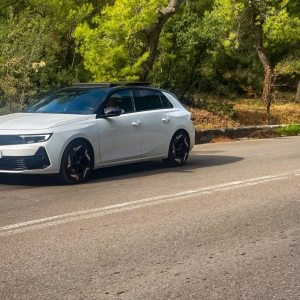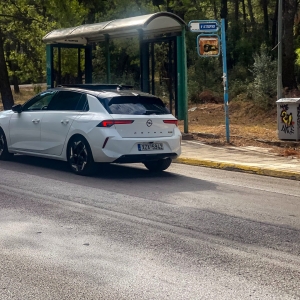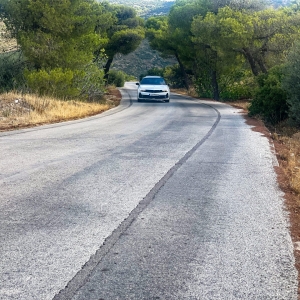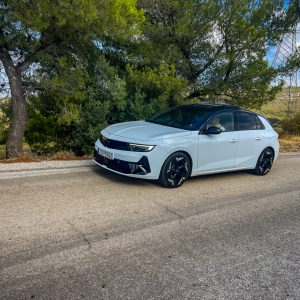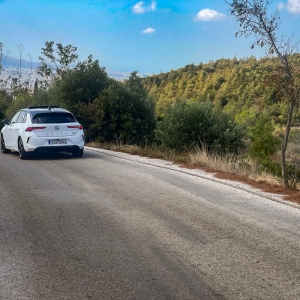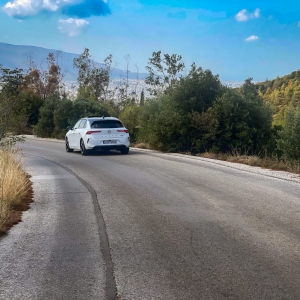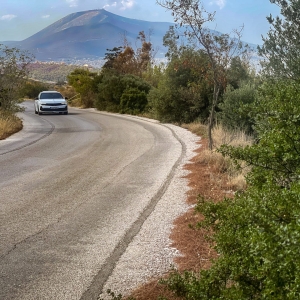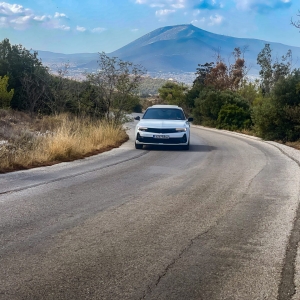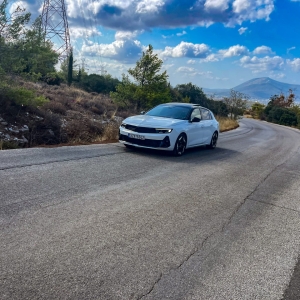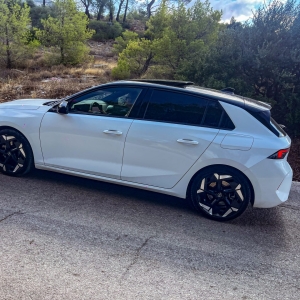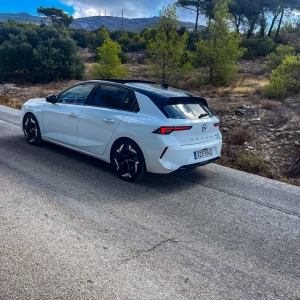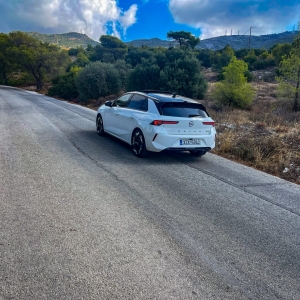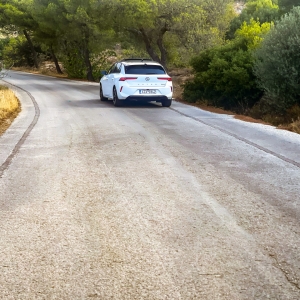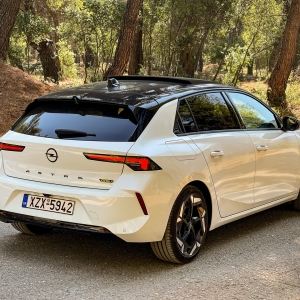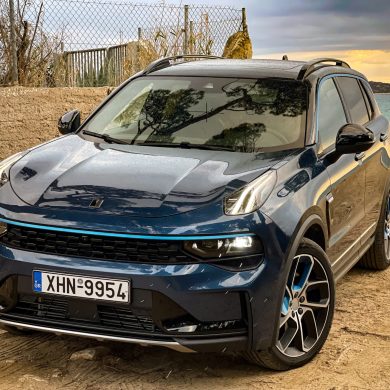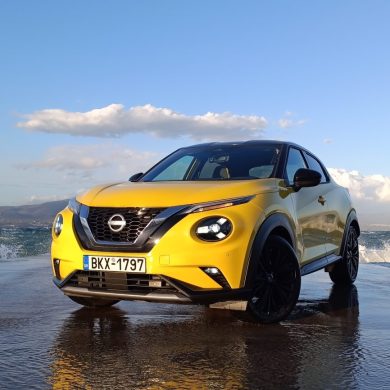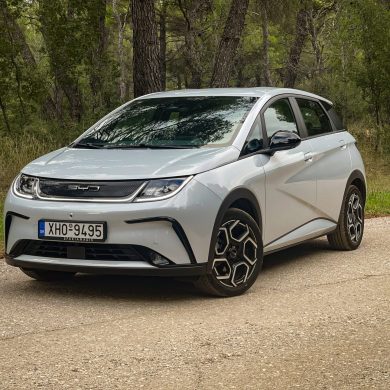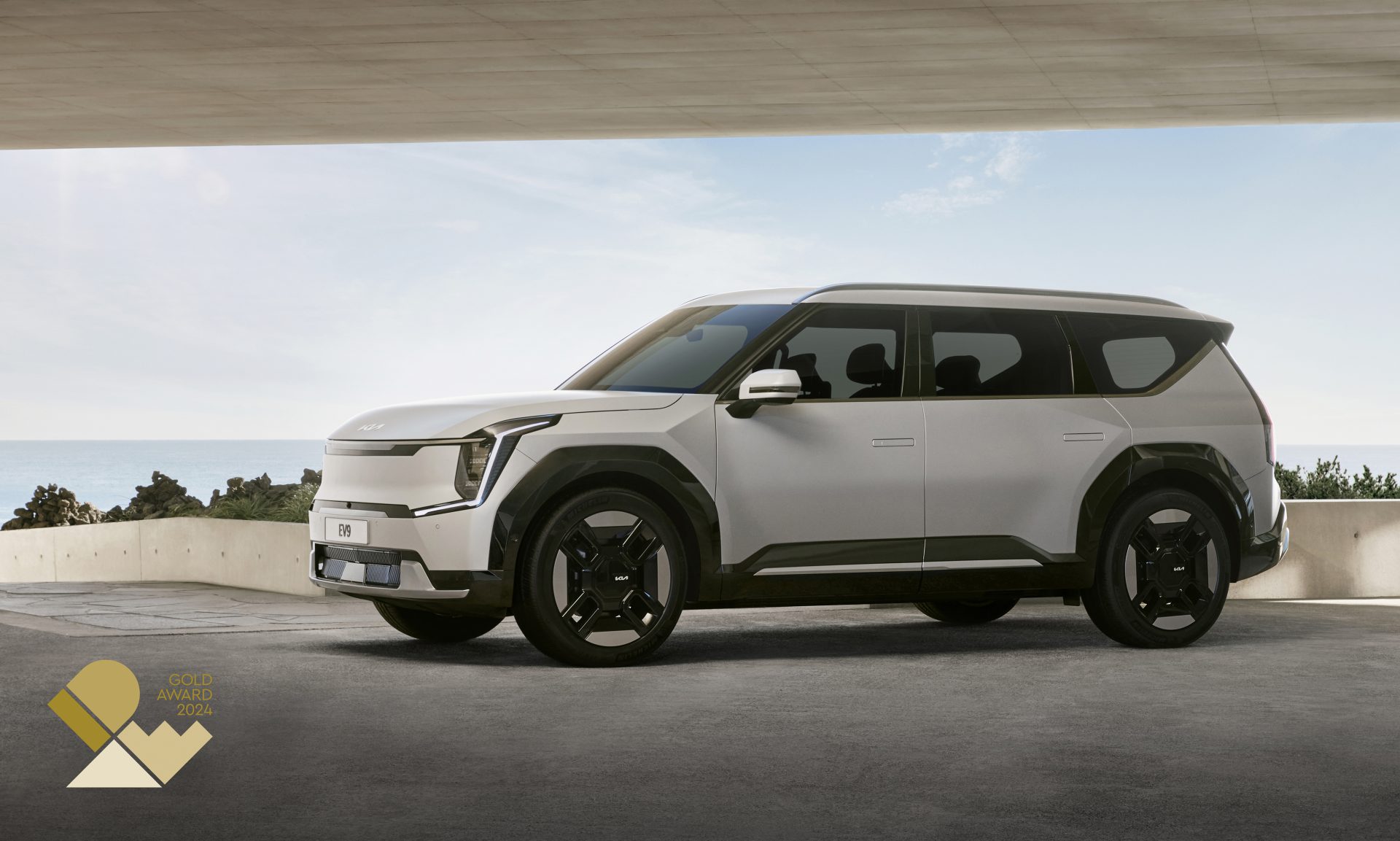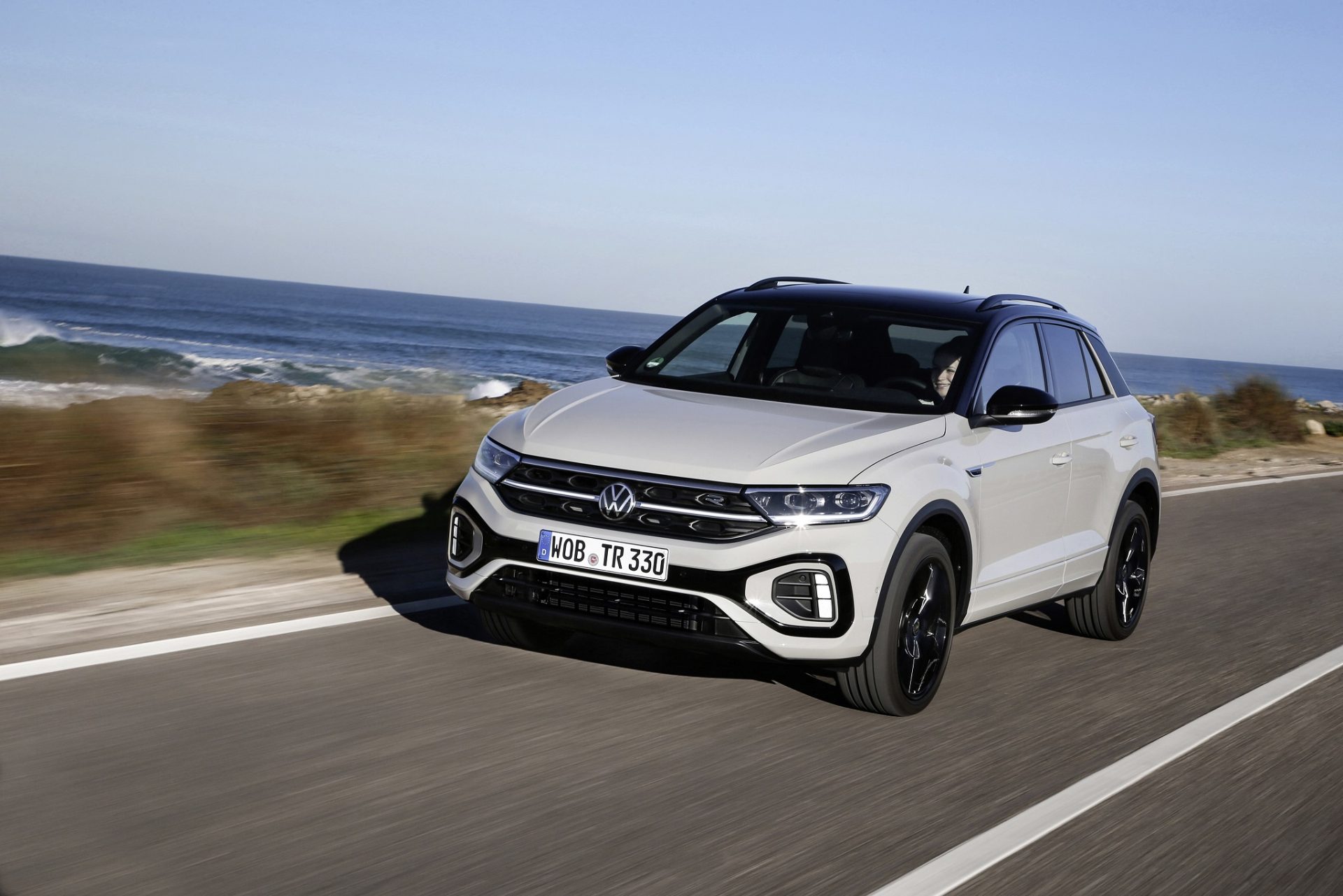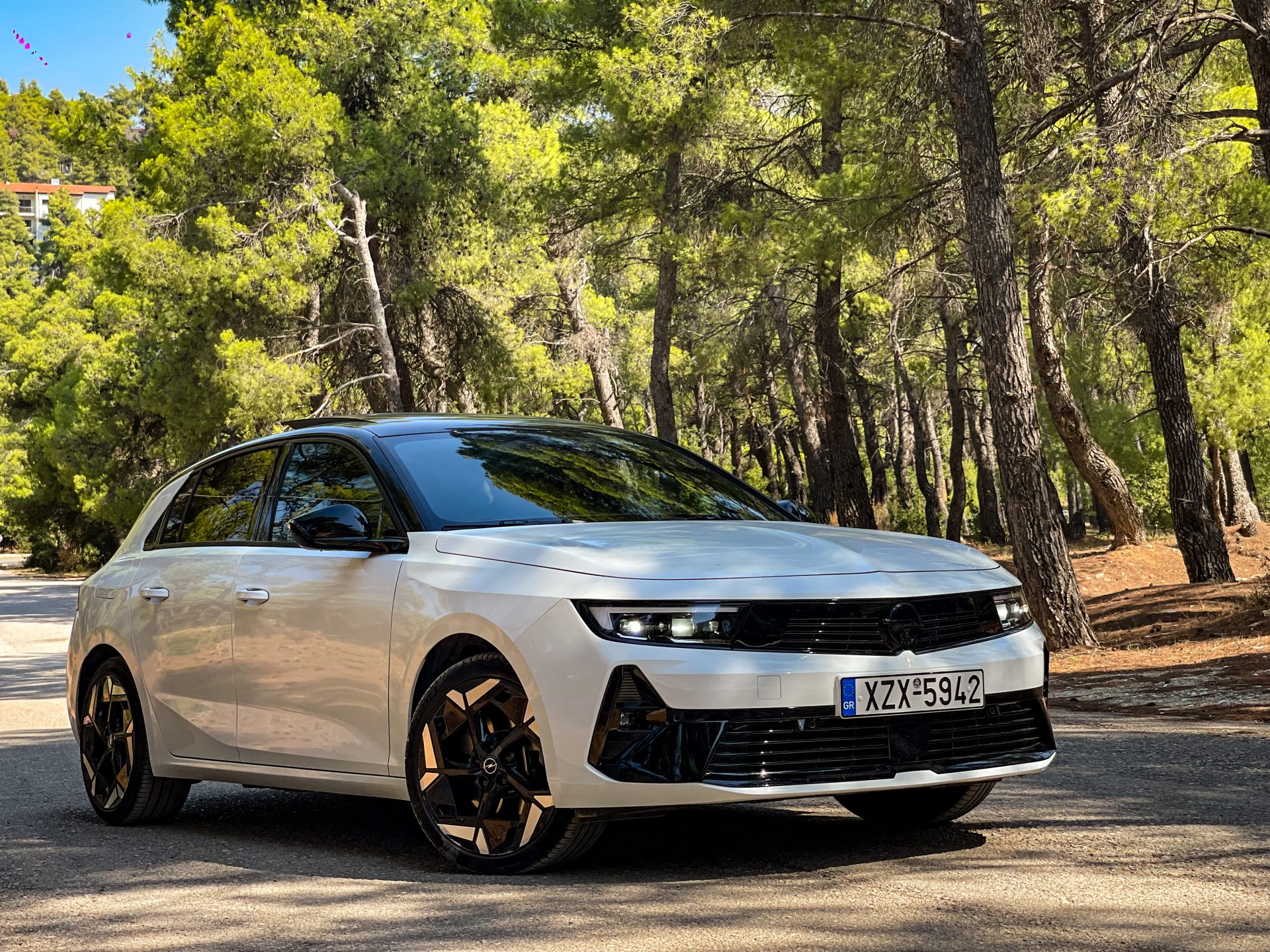
"Top Gun" and Tom Cruz comes to mind as a fighter pilot! This is the feeling of a fighter gun that Opel in the top-of-the-range GSe version of its mid-size hatchback, with 225 hp, starting with the focused design details and ending with remarkable performance!
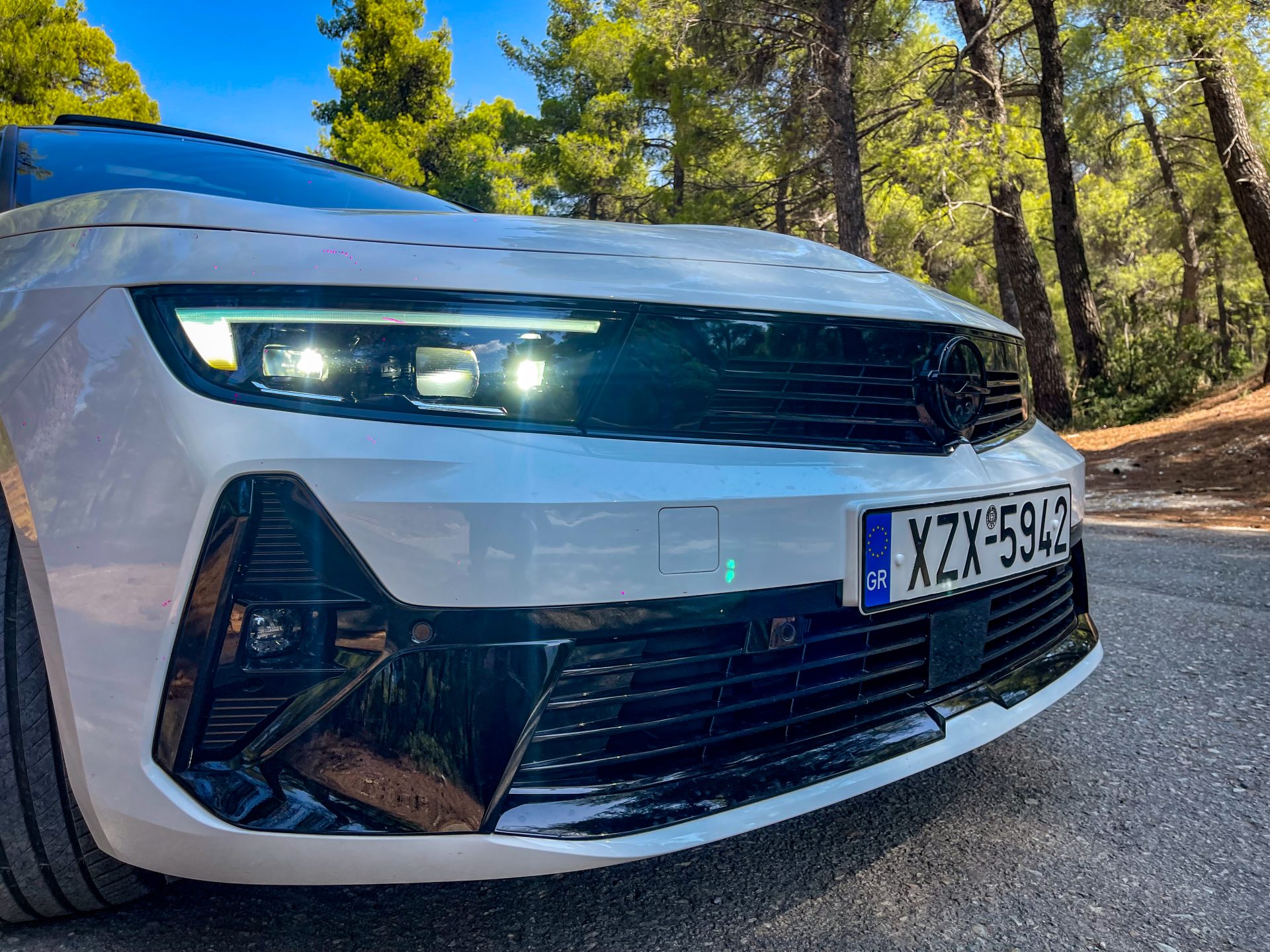
Back to the 70ties
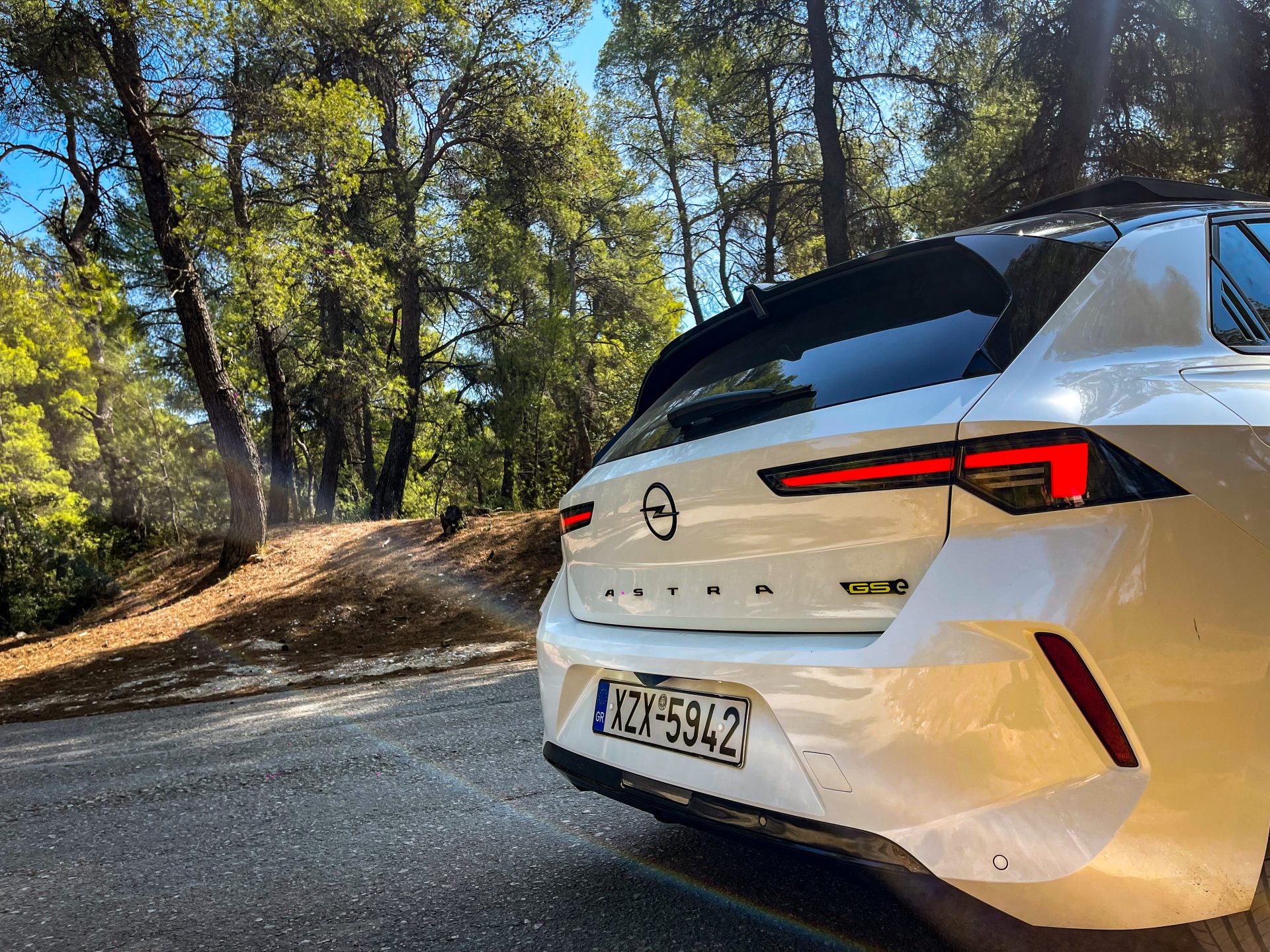
We've already known the story of the Opel Astra in previous tests. Now the German company is doing away with the familiar OPC version that was at the top of the range and replacing it with the GSe.
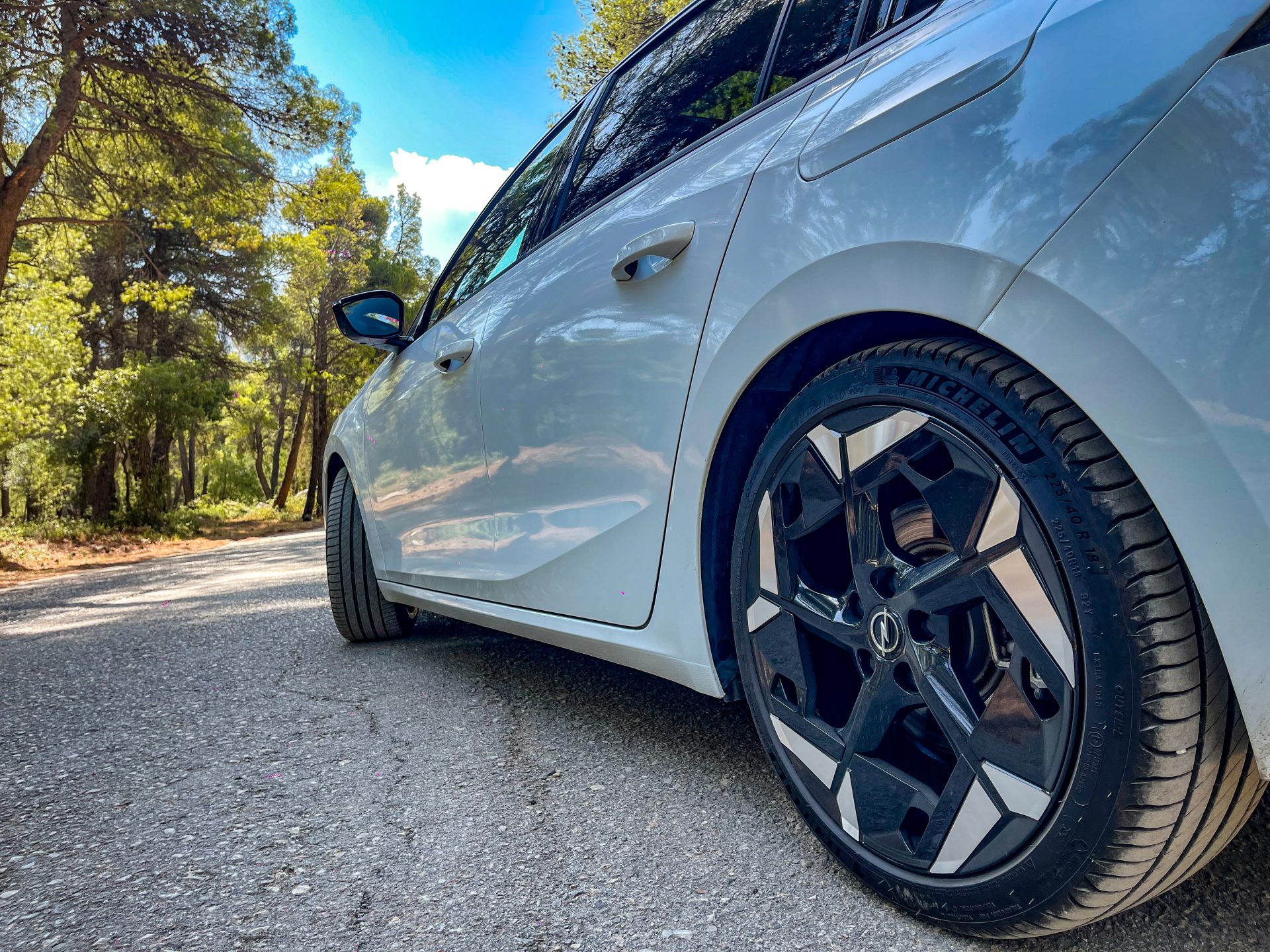
With a throwback to the past, the GSe versions are the top-of-the-line and racing versions of the Opel of the 1970s, spearheaded by the timeless Opel Commodore of that decade. At the time it stood for "Grand Sport Einspritz", with "Einspritz" in German meaning "injection".
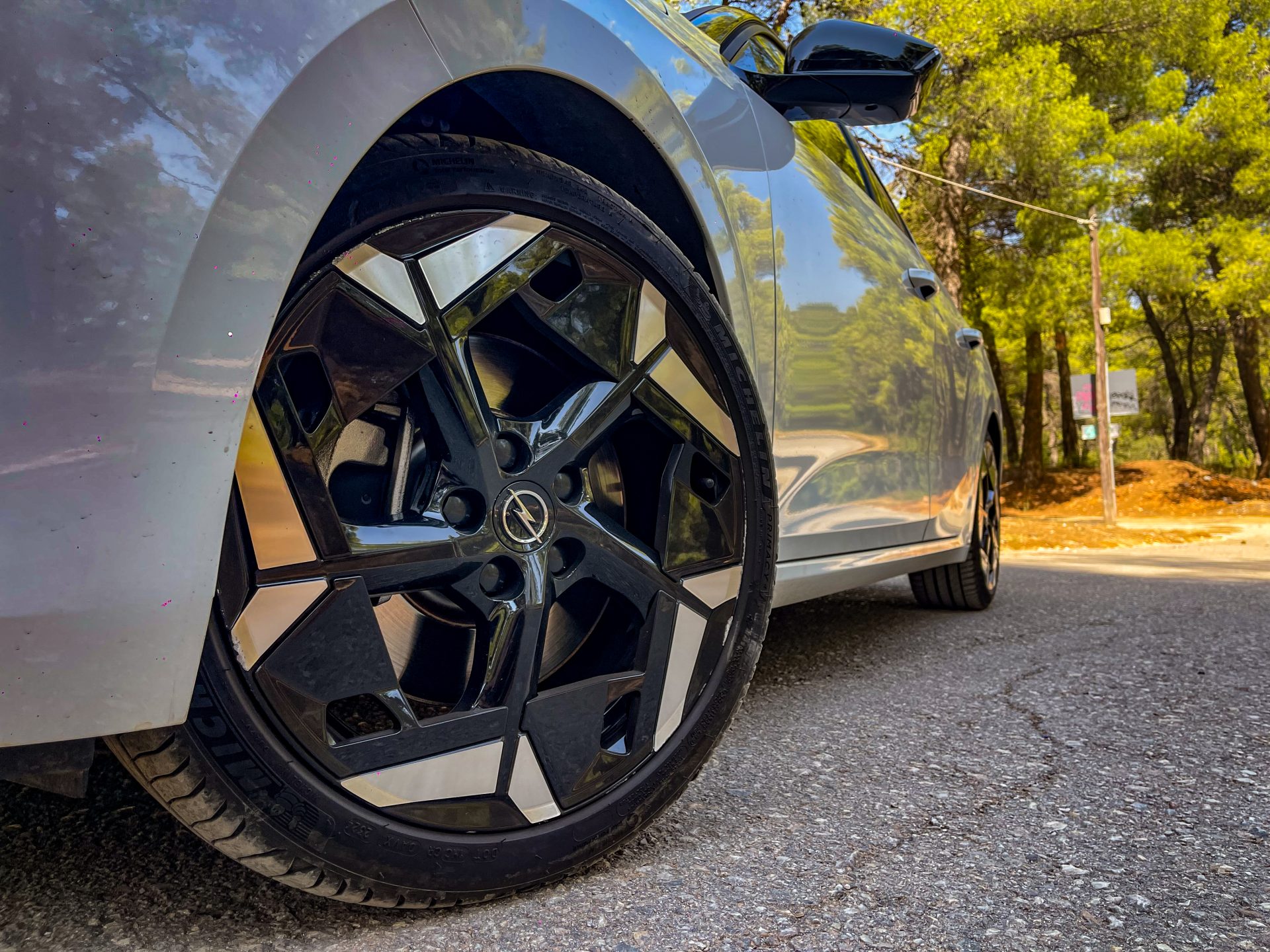
In its modern version, the relaunch of the GSe "sub-brand" stands for Gran Sport Electric.
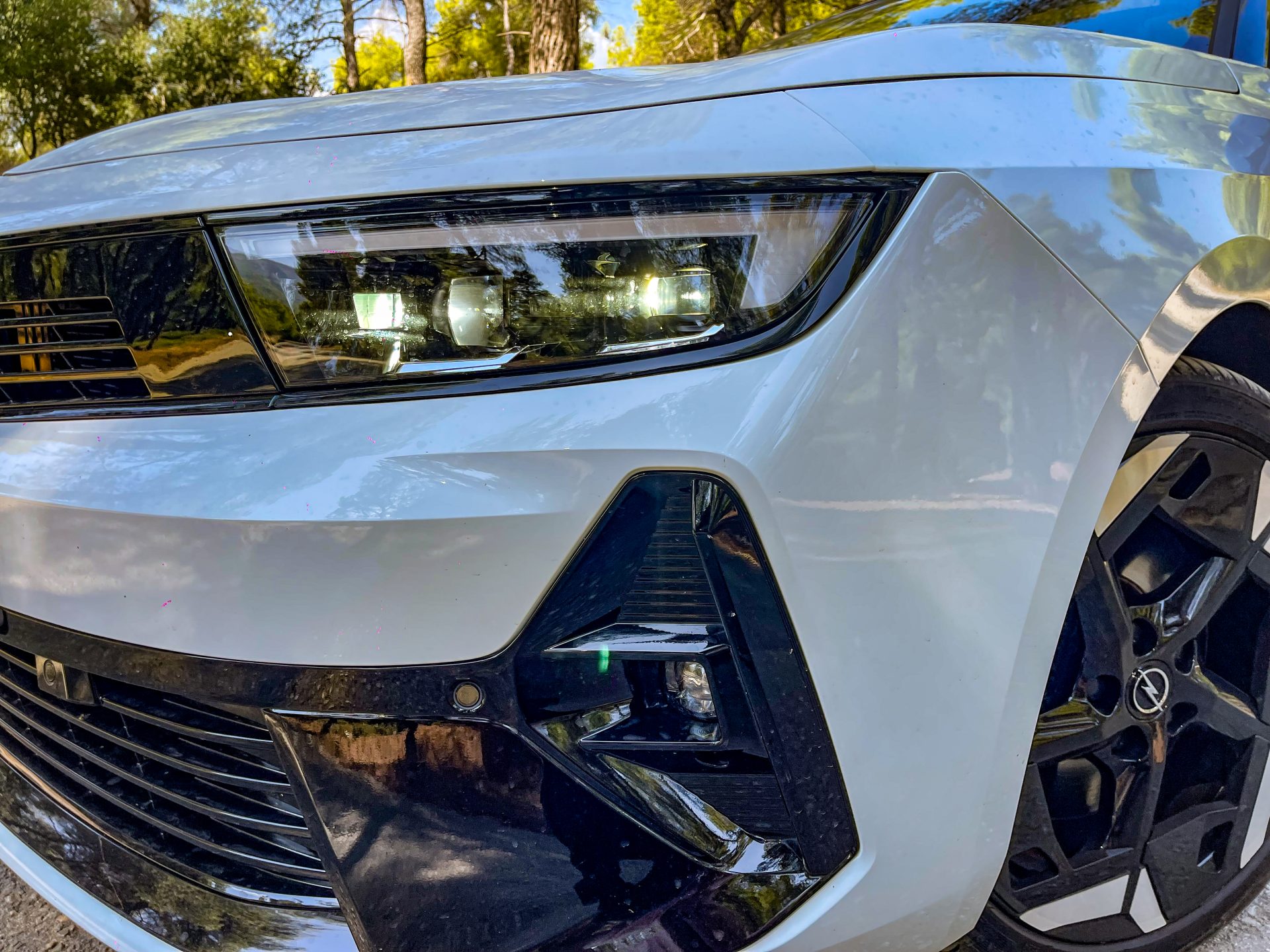
Plus, the choice of the name was not chosen by chance but has the dual mission of nostalgia and emotion on the one hand and the sporty way of transitioning to electrification on the other, as the "e" betrays the range's electrified orientation.
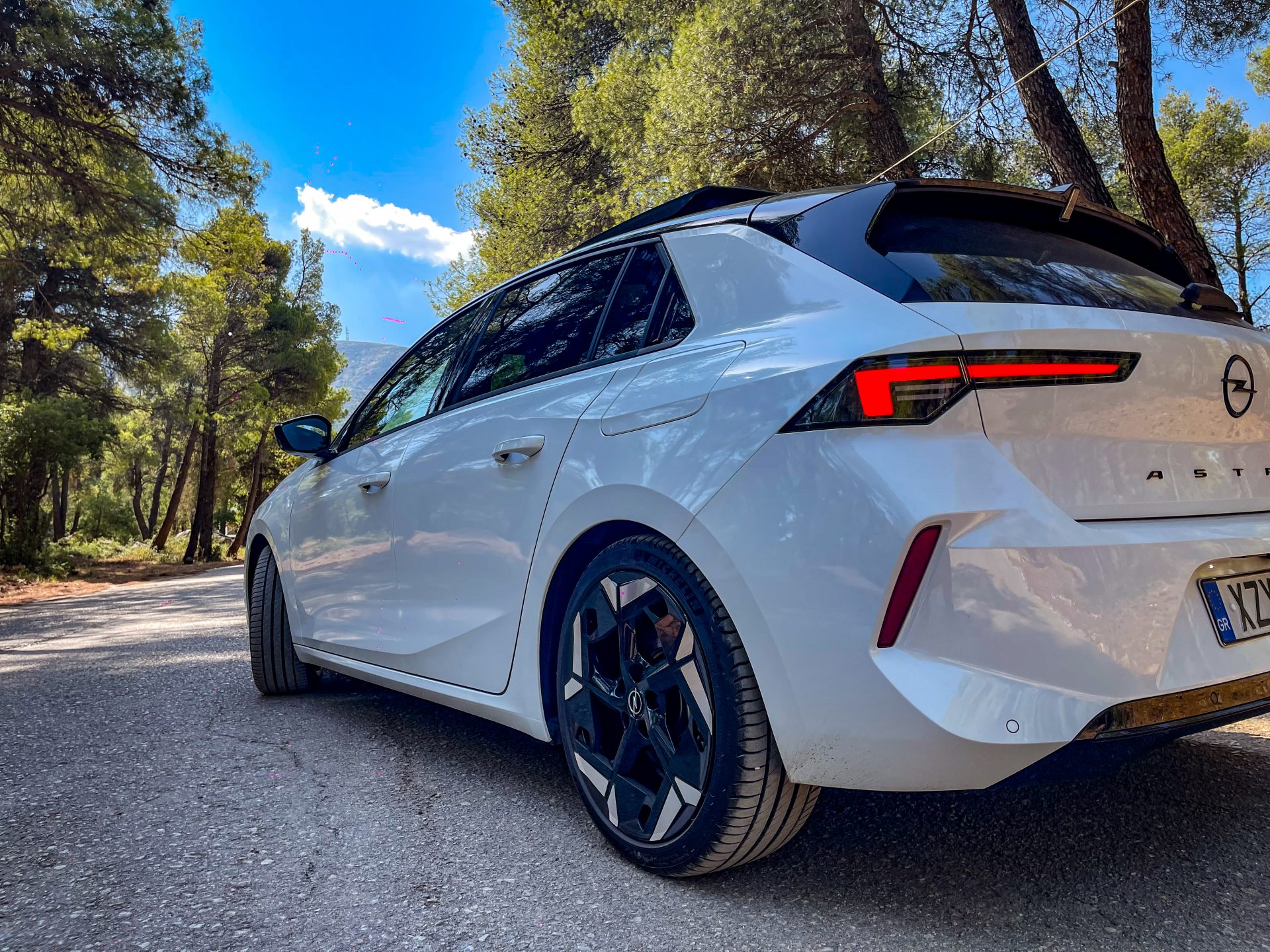
Targeted details
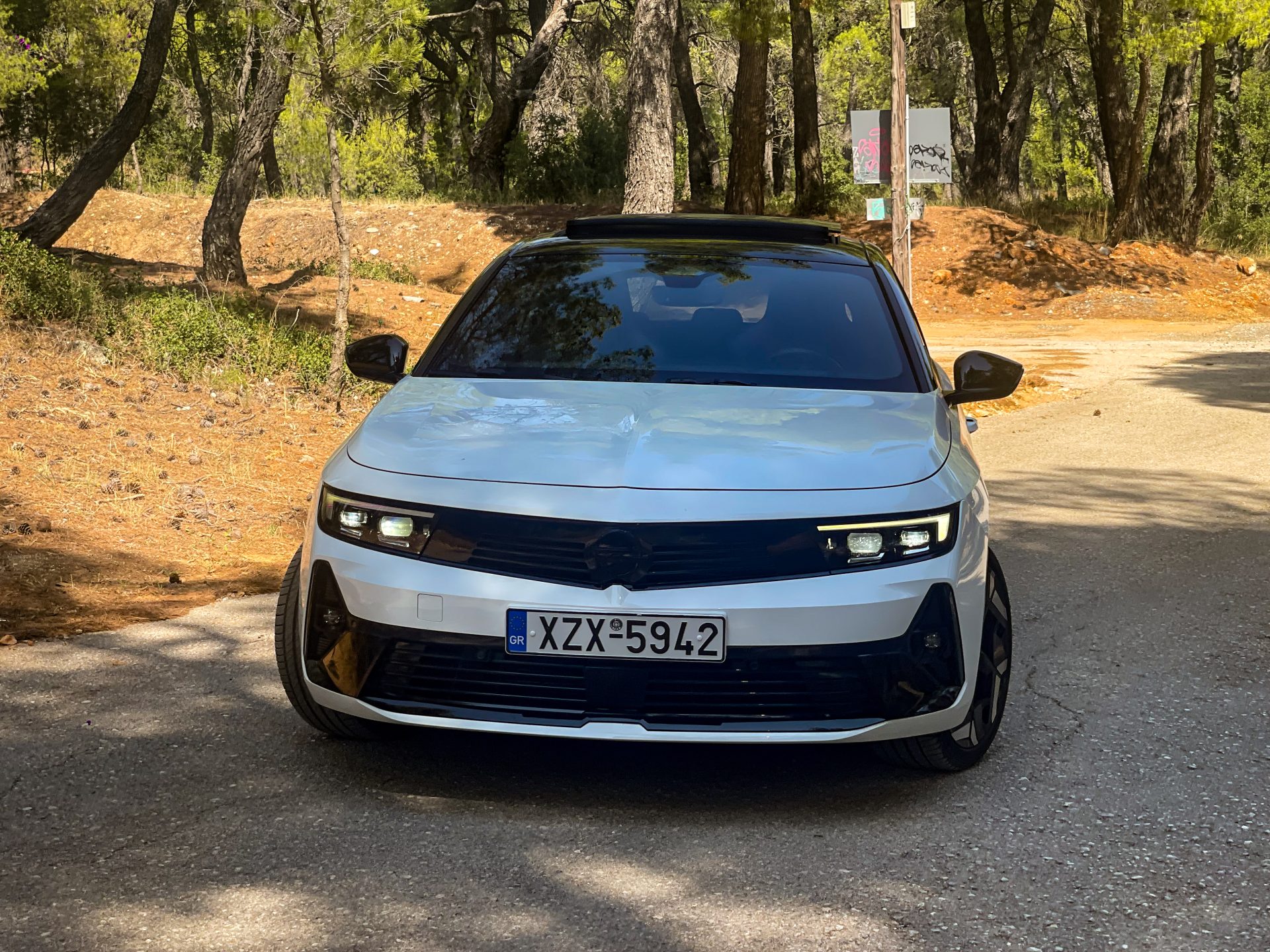
Visually, it embraces the new design language of the modern Opel, retaining the silhouette and proportions of the 6th generation Astra, but with targeted details that betray the "hot" character.
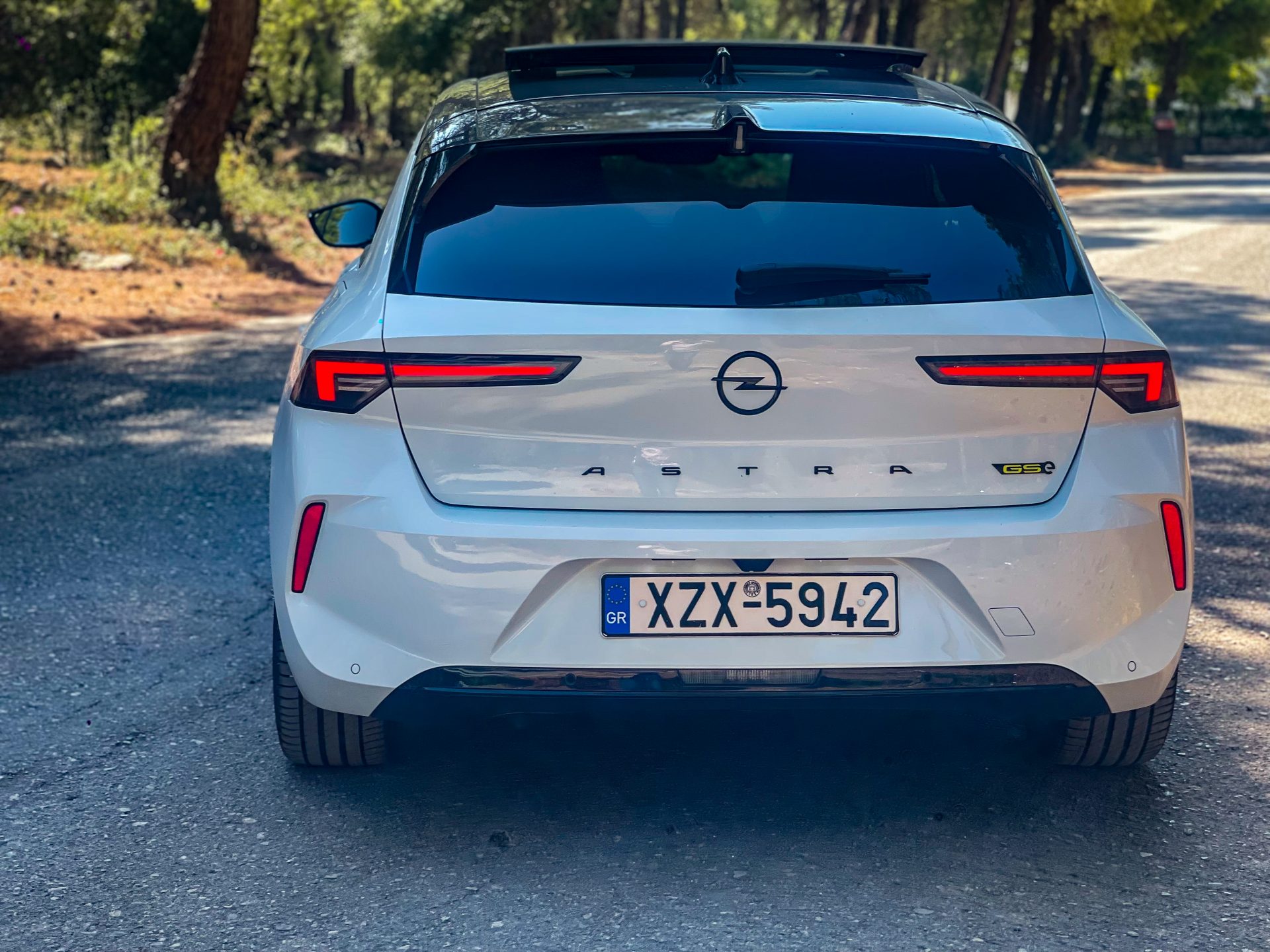
In particular, the front end is enclosed by the new front part called "Visor". Design-wise, it does not deviate from the conventional versions, but the difference is found in the more massive and wider bumper, which gives the feeling that the car has been "inflated" and grown, making it look more aggressive.
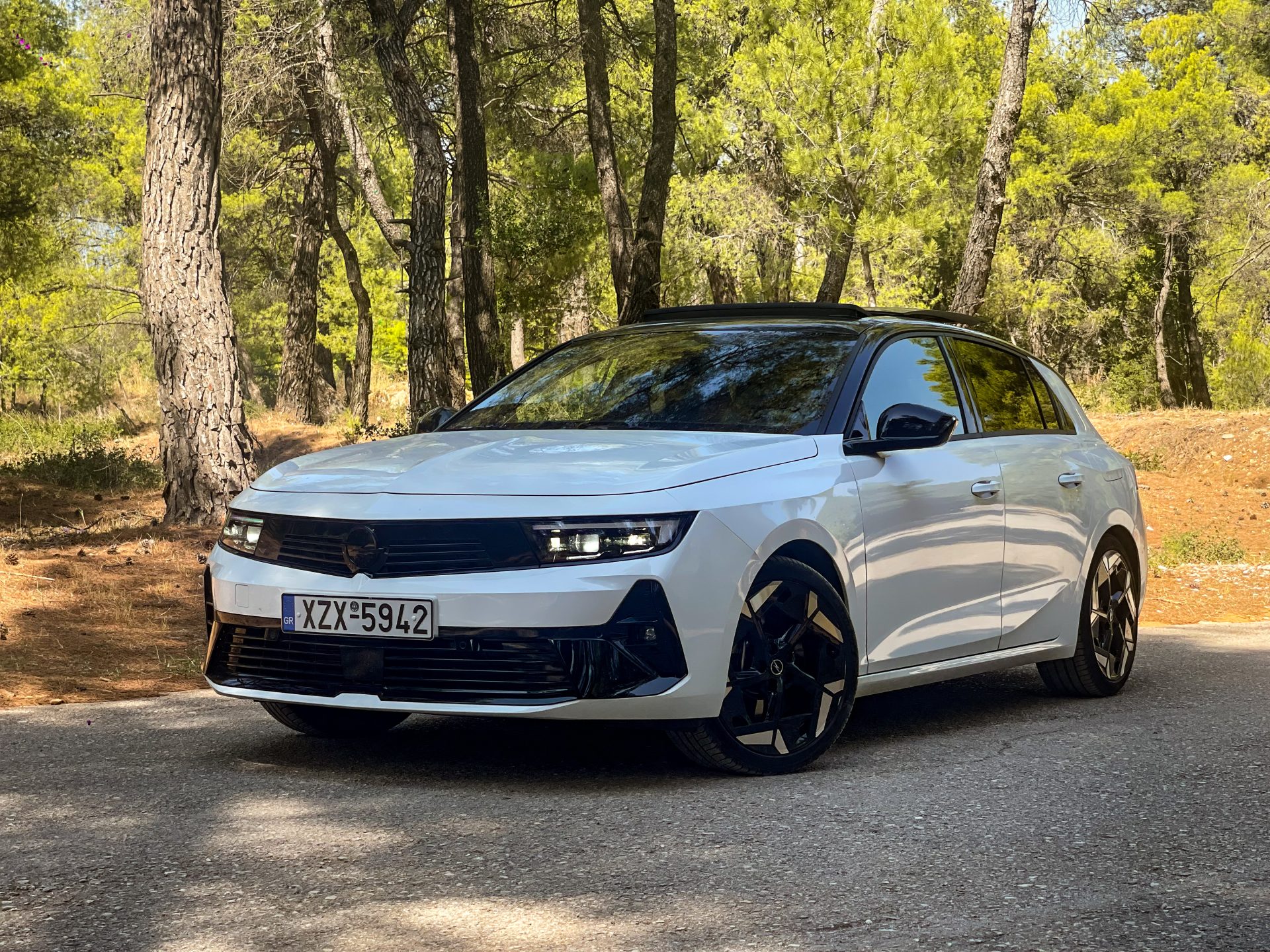
The profile also looks aggressive, featuring a lowered body combined with 18-inch wheels with low-profile 225/40 tyres, betraying the model's sporty orientation.
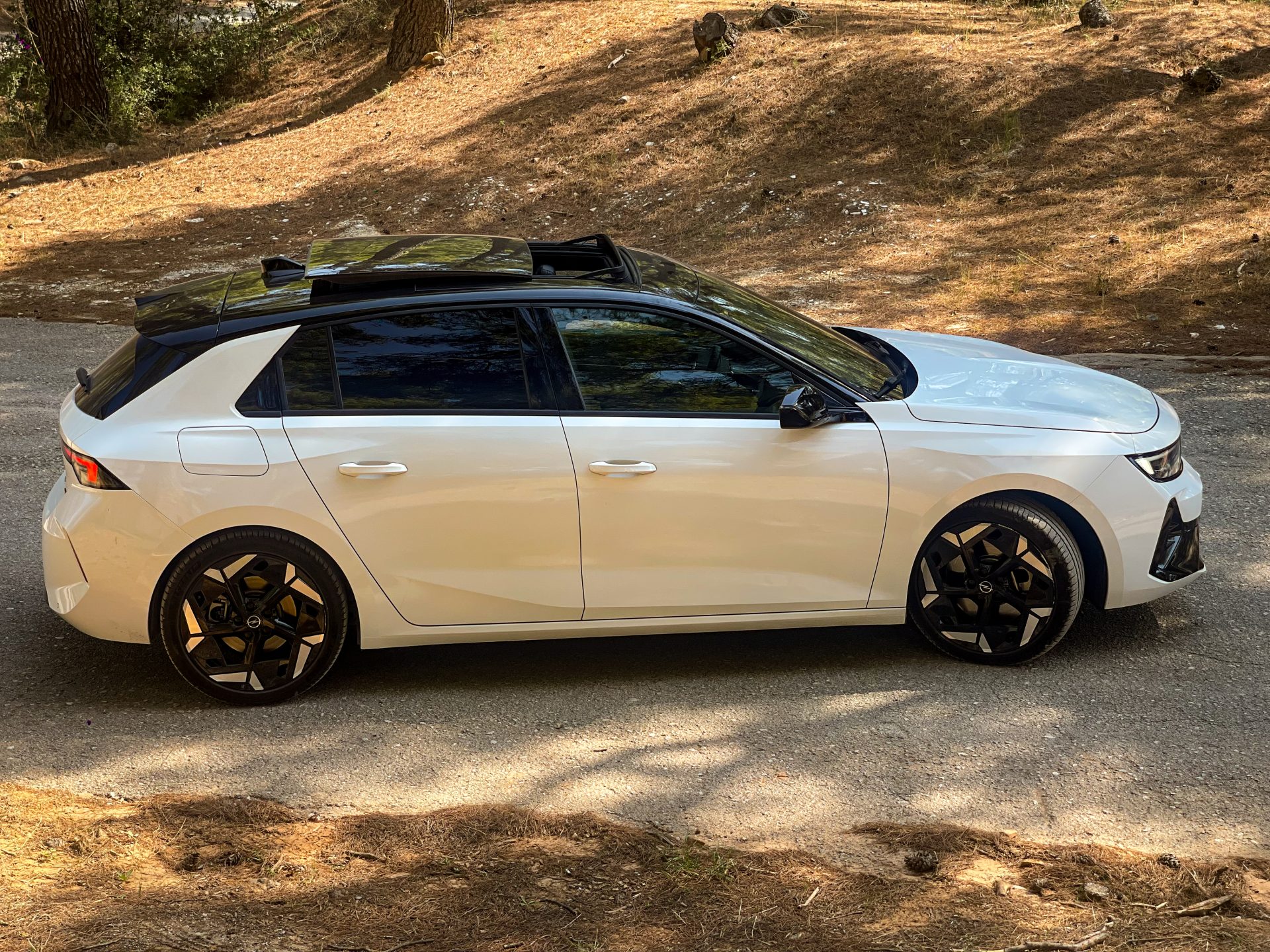
The same pattern is followed at the rear of the car, which differs from conventional versions thanks to the wider bumper with aerodynamic diffuser and the large air dam on the roof of the car.
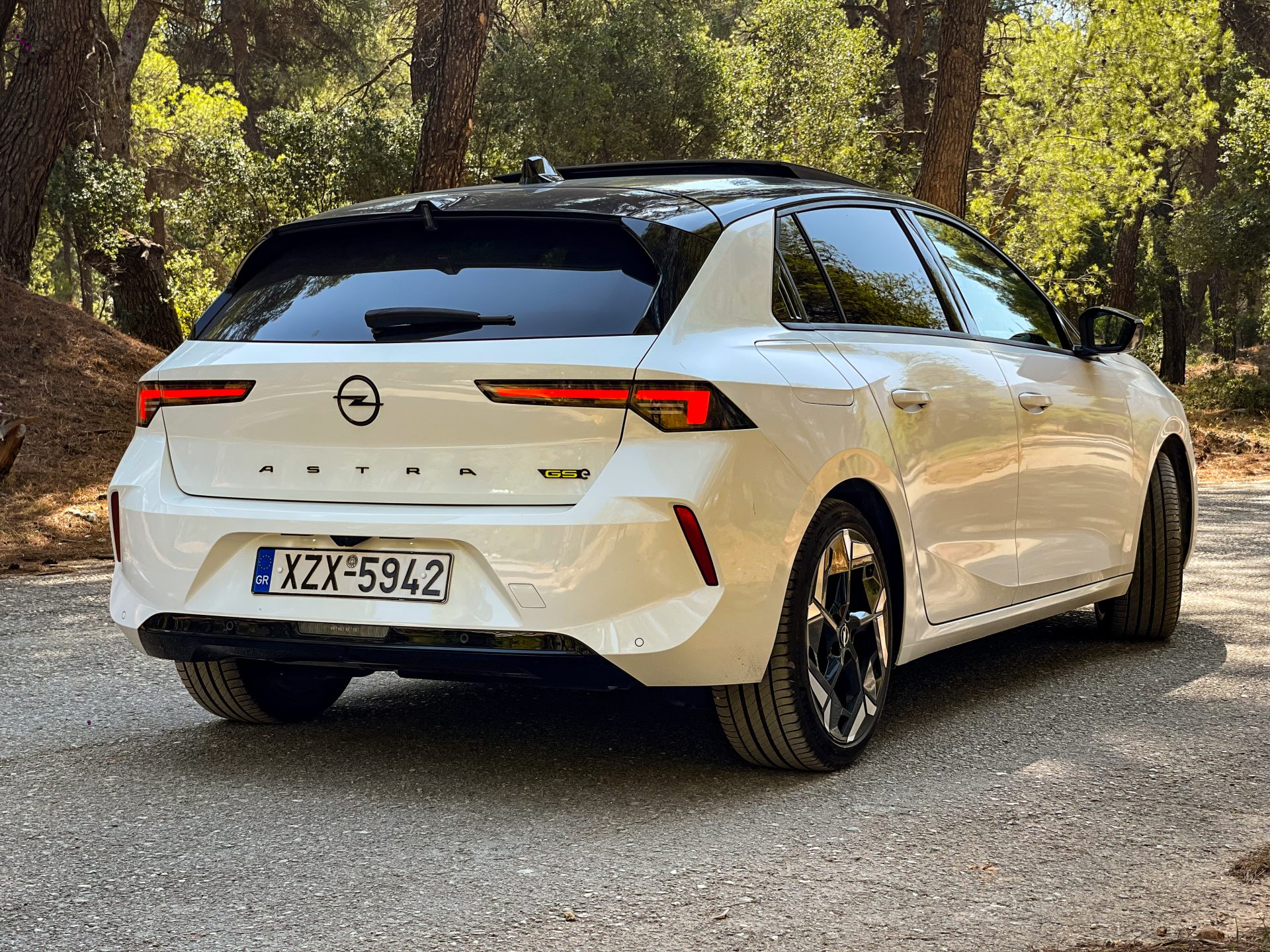
Sportif and quality
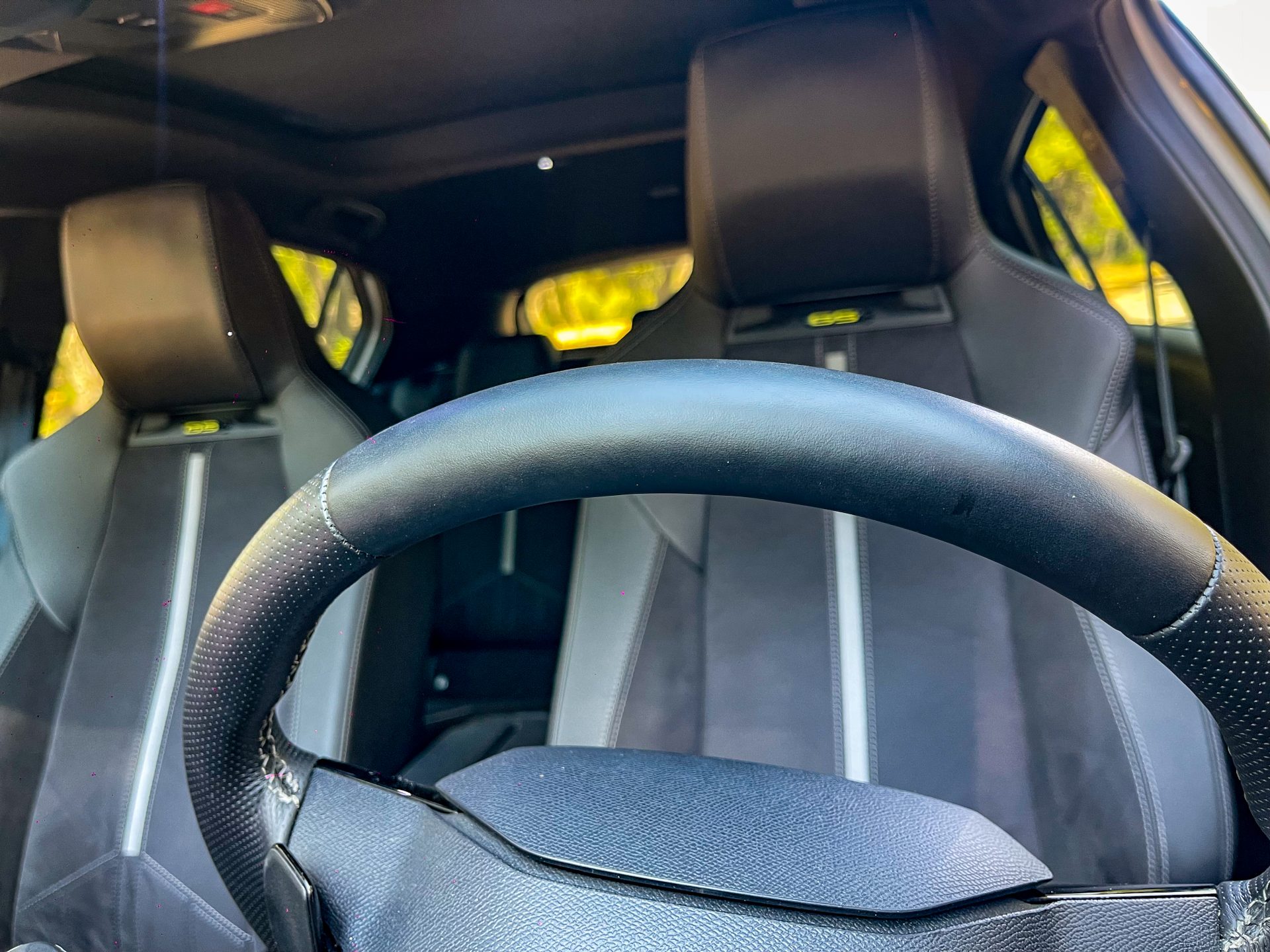
The interior of the car is also differentiated in terms of finish and upgrading of materials. Design-wise and visually, it follows the same path as the conventional versions.
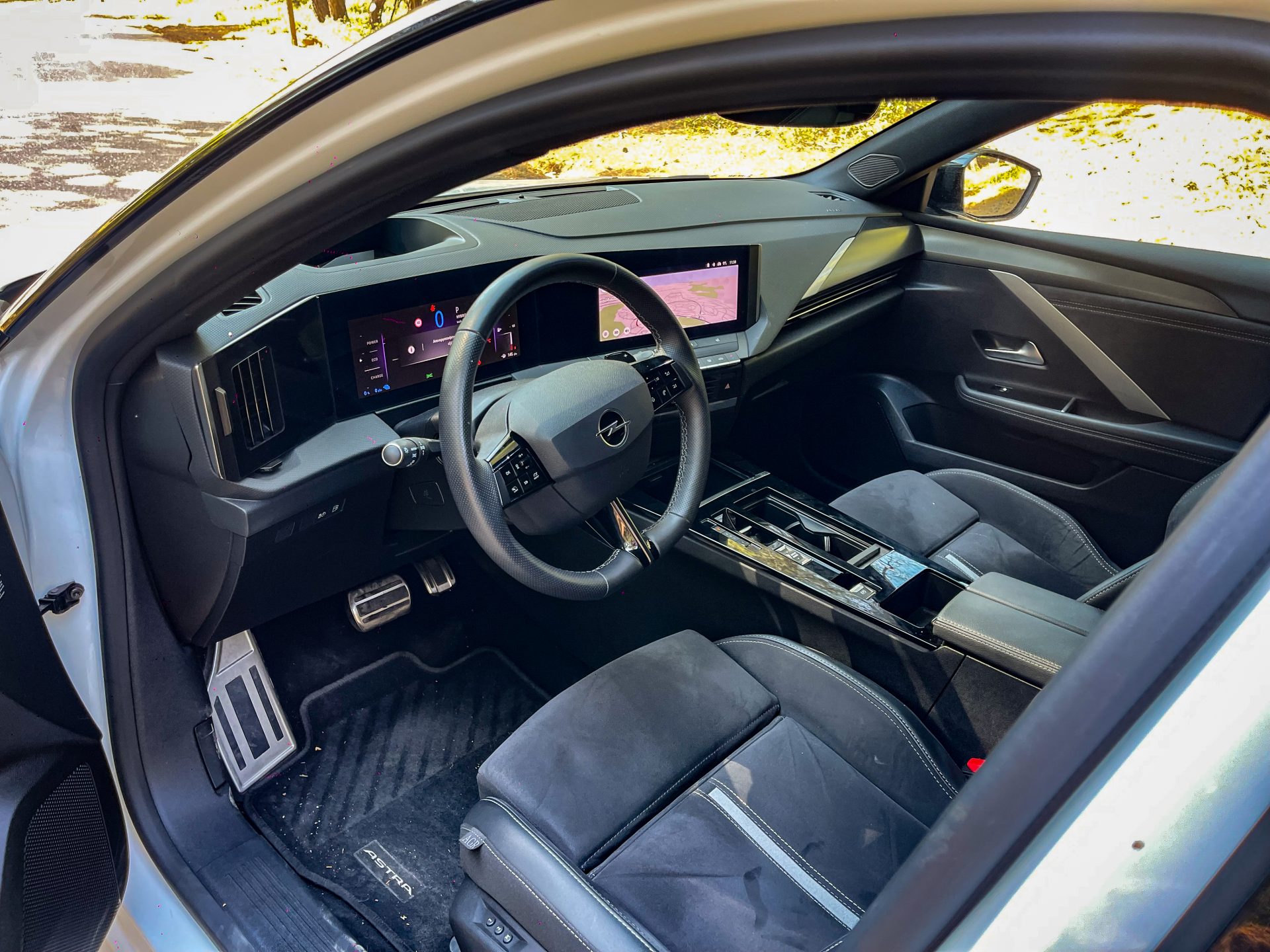
First up is the Pure Panel with its two 10.25-inch screens, one as a continuation of the other. The left one functions as the digital multifunctional instrument panel and the central one as the multimedia system compatible with Android Auto and Apple AirPlay, in which the driver can manage the flow of actions and other car functions.
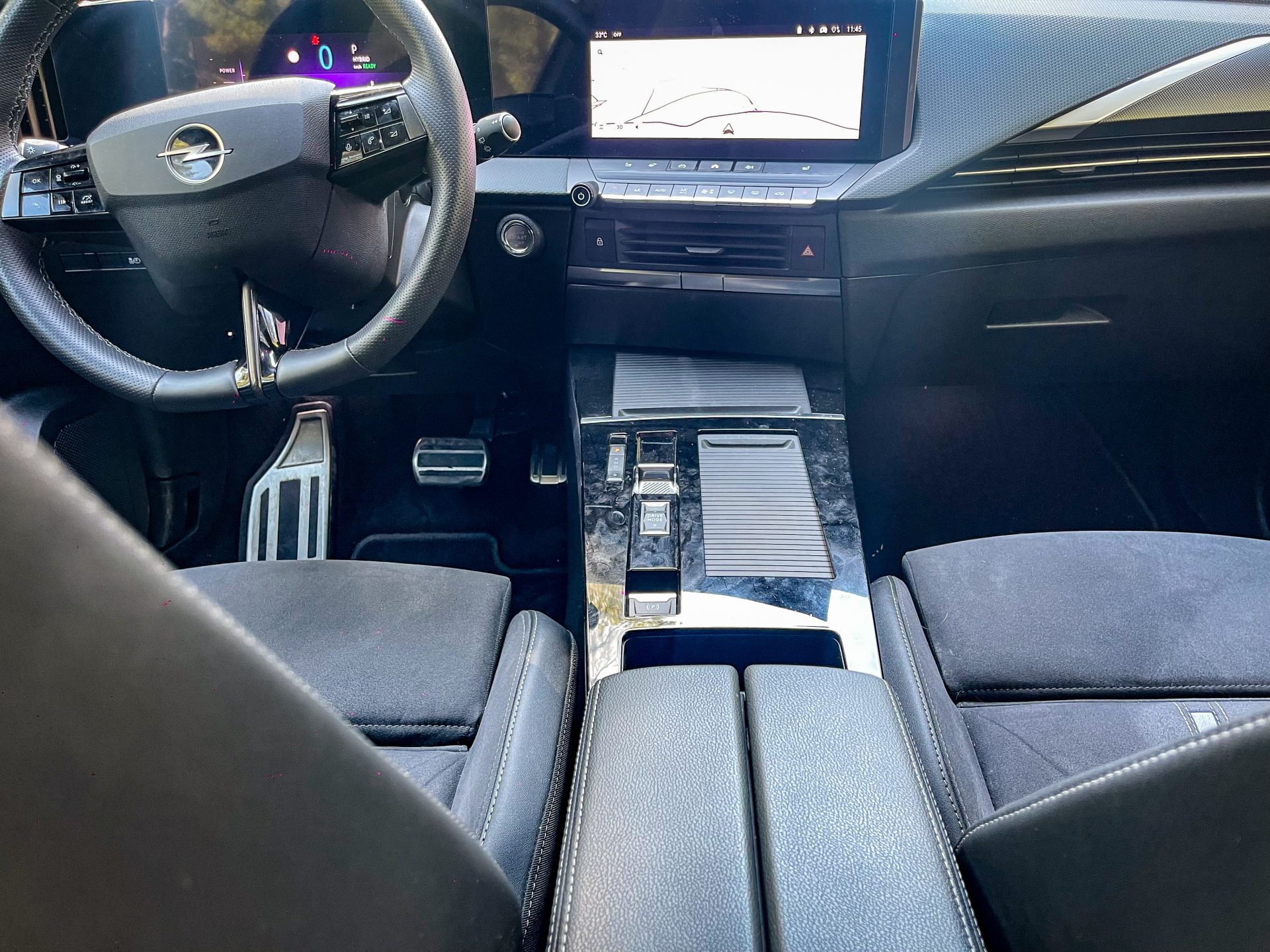
The dashboard features aluminium detailing and a carbon fibre finish that gives it a carbon fibre feel, slightly angled towards the driver, emphasising its driver-centric character.
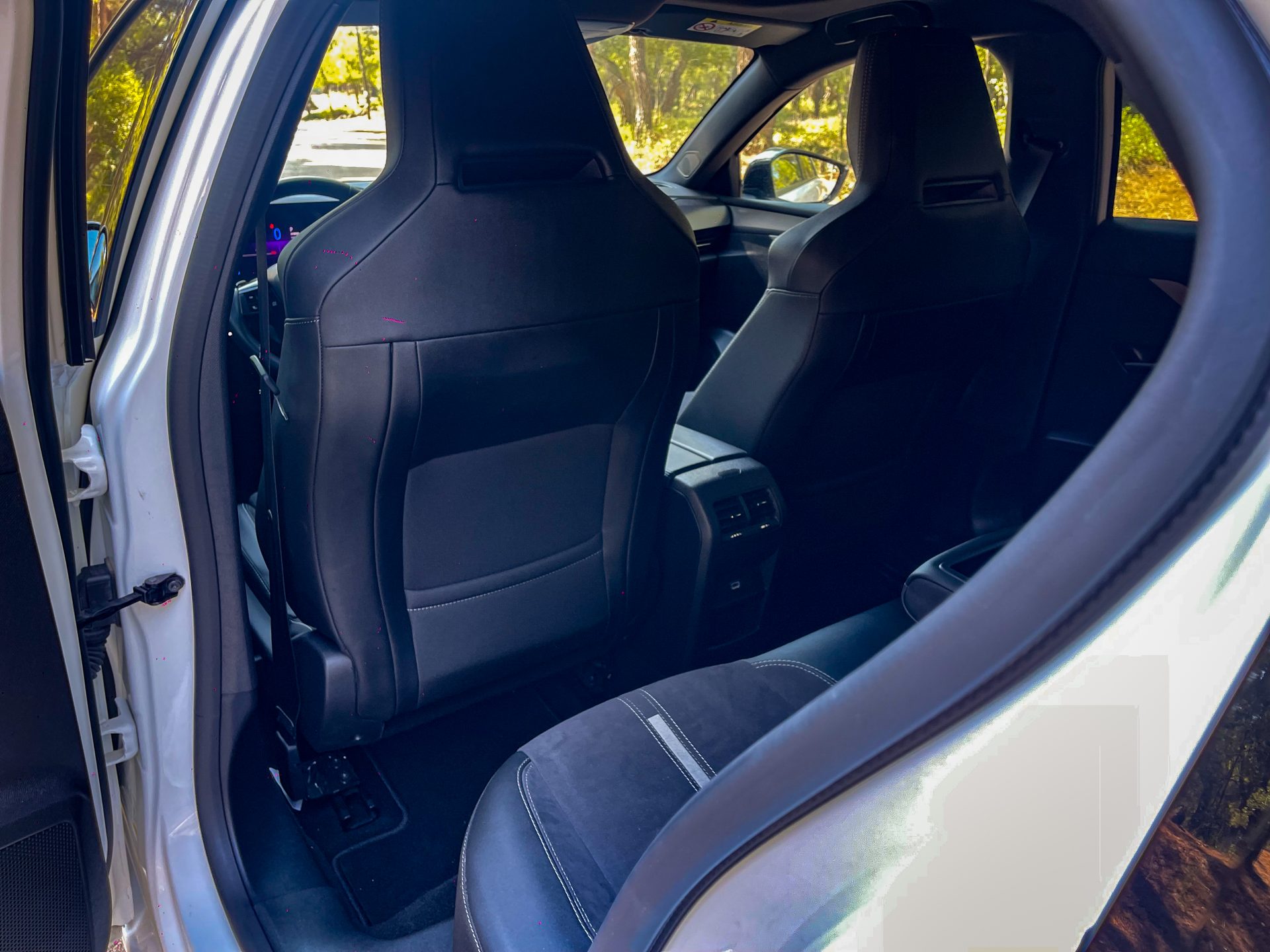
The compartments in the console are numerous and clever, intelligently increasing the available space. The switches are in the right places, contributing to ergonomics and functionality.
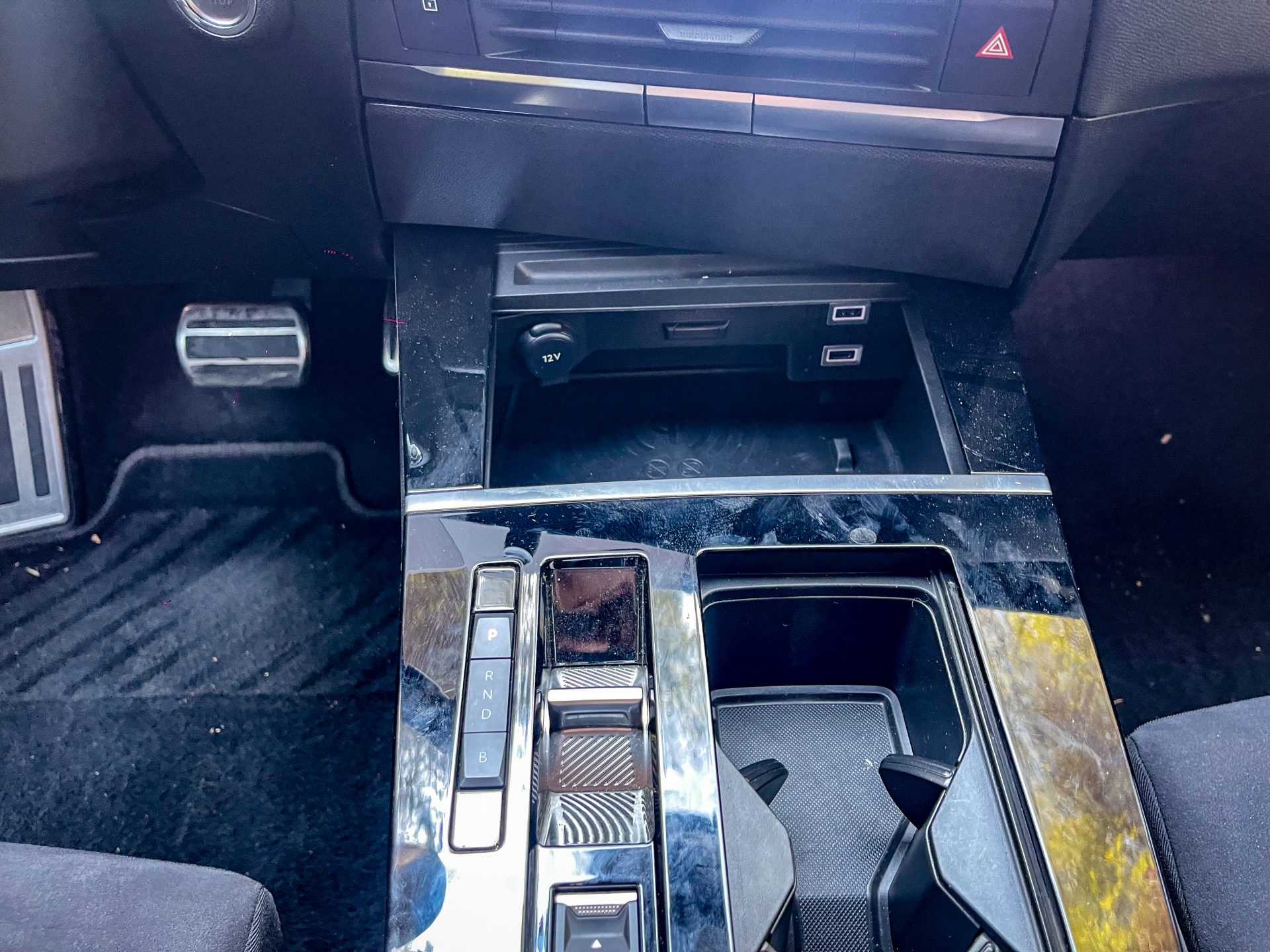
However, the most interesting element that differentiates the entire cabin is the Alcantara-lined bucket racing seats with AGR certification that achieve very good comfort and effective lateral support for the passenger's body.
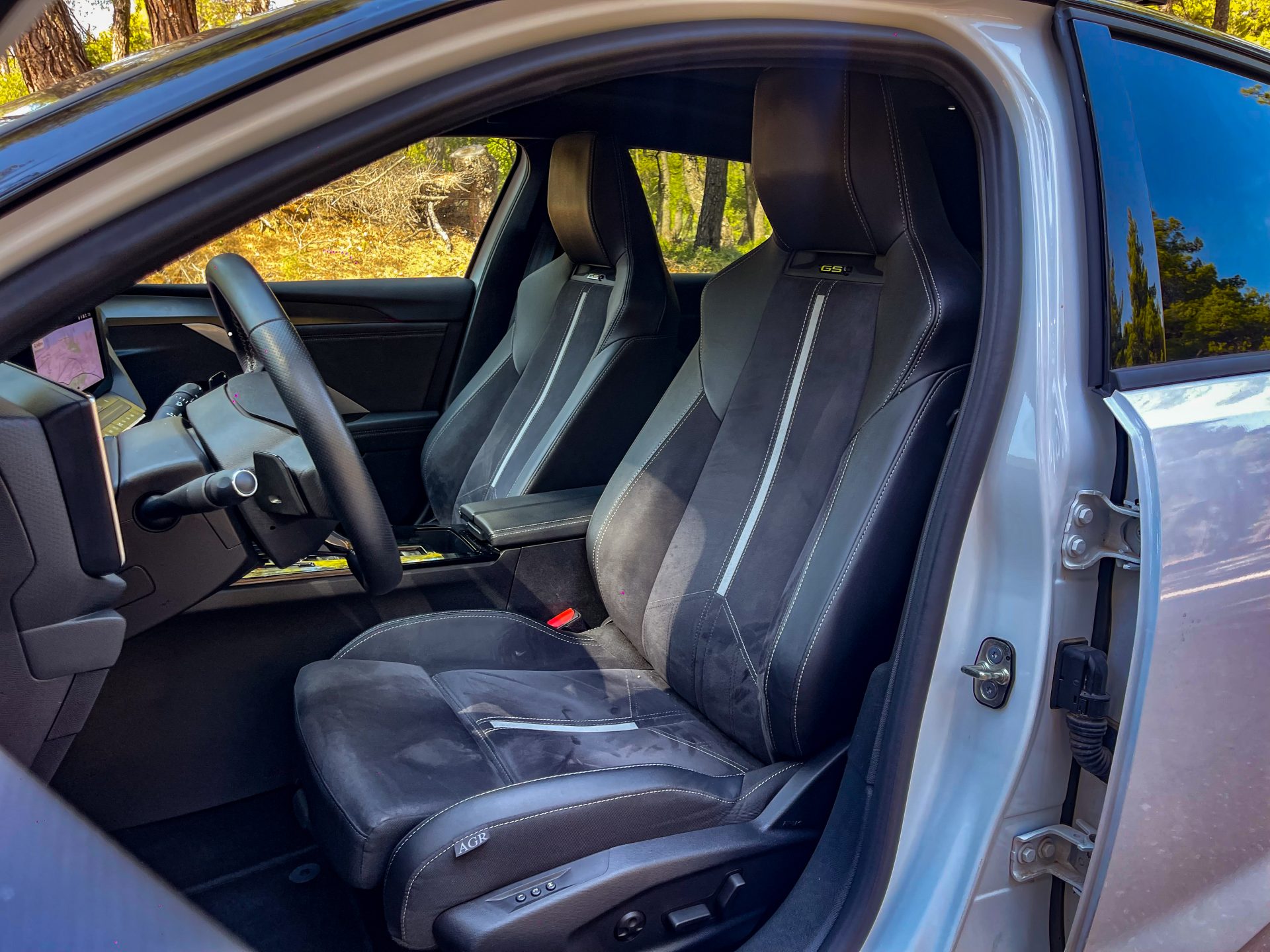
The volume of the luggage compartment is 352 litres and with the rear seats fully folded it reaches 1,268 litres, which is 70 litres less than the thermal Astra due to the battery.
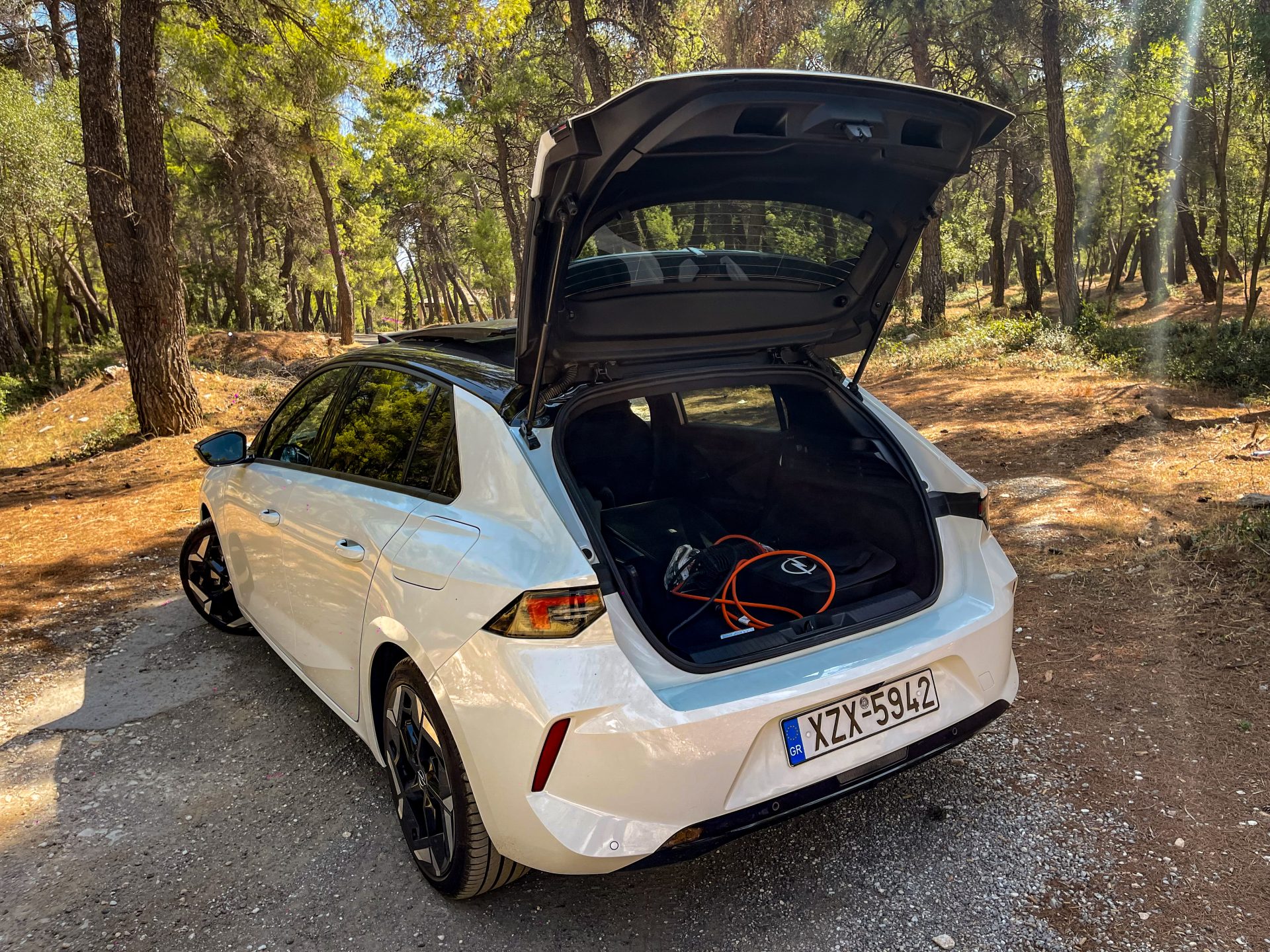
Aiming at performance

Under the bonnet is a 1.6-litre turbocharged petrol engine from the PureTech family producing 181bhp at 6000rpm and 250Nm of torque, which works in tandem with an efficient electric motor producing 110bhp at 2500rpm and 320Nm of torque, which combine to deliver 225bhp and 360Nm of torque.
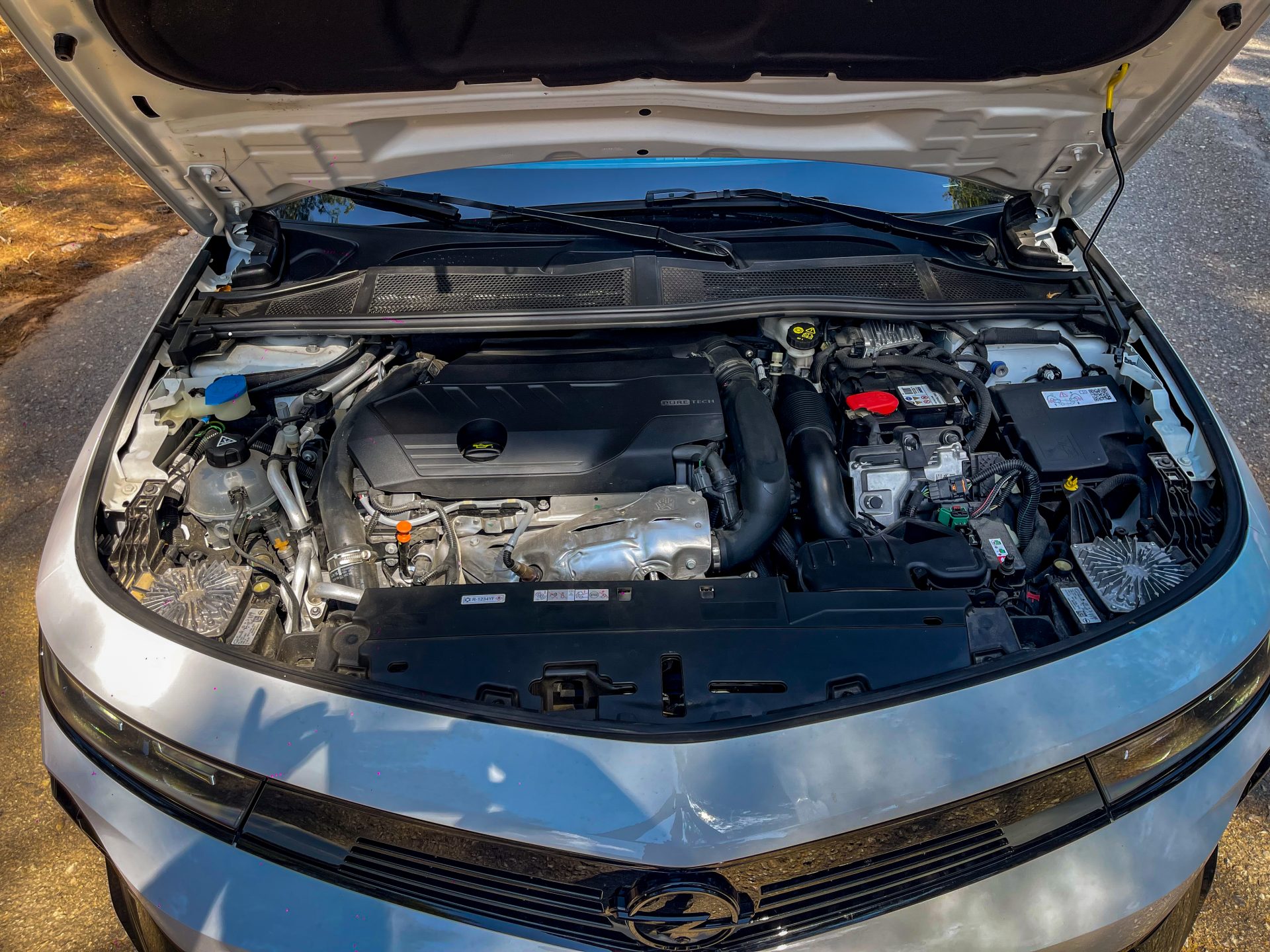
The system is mated to an eight-speed Aisin automatic gearbox, which is integrated with the electric motor and gives drive to the front axle.
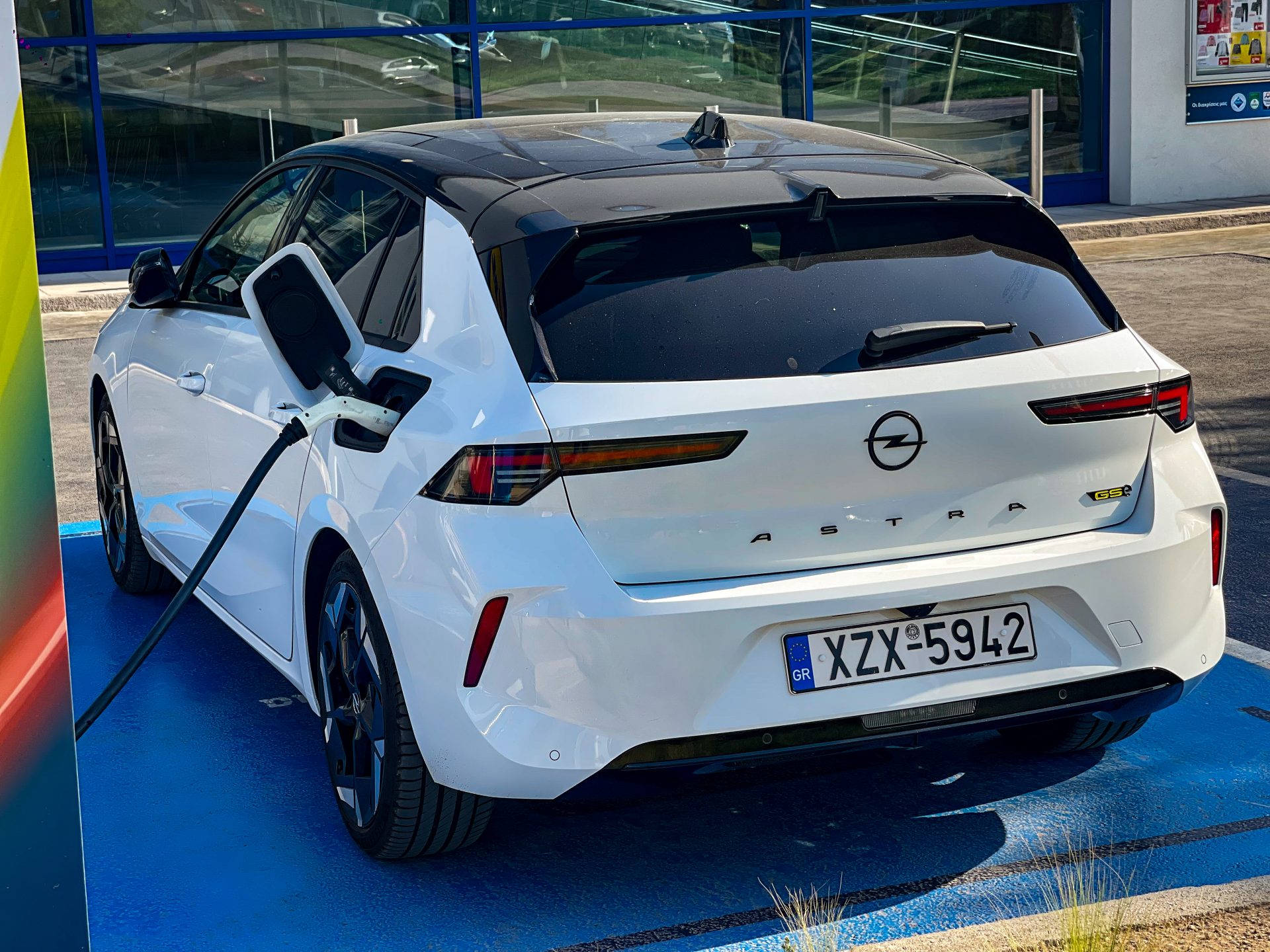
Balanced
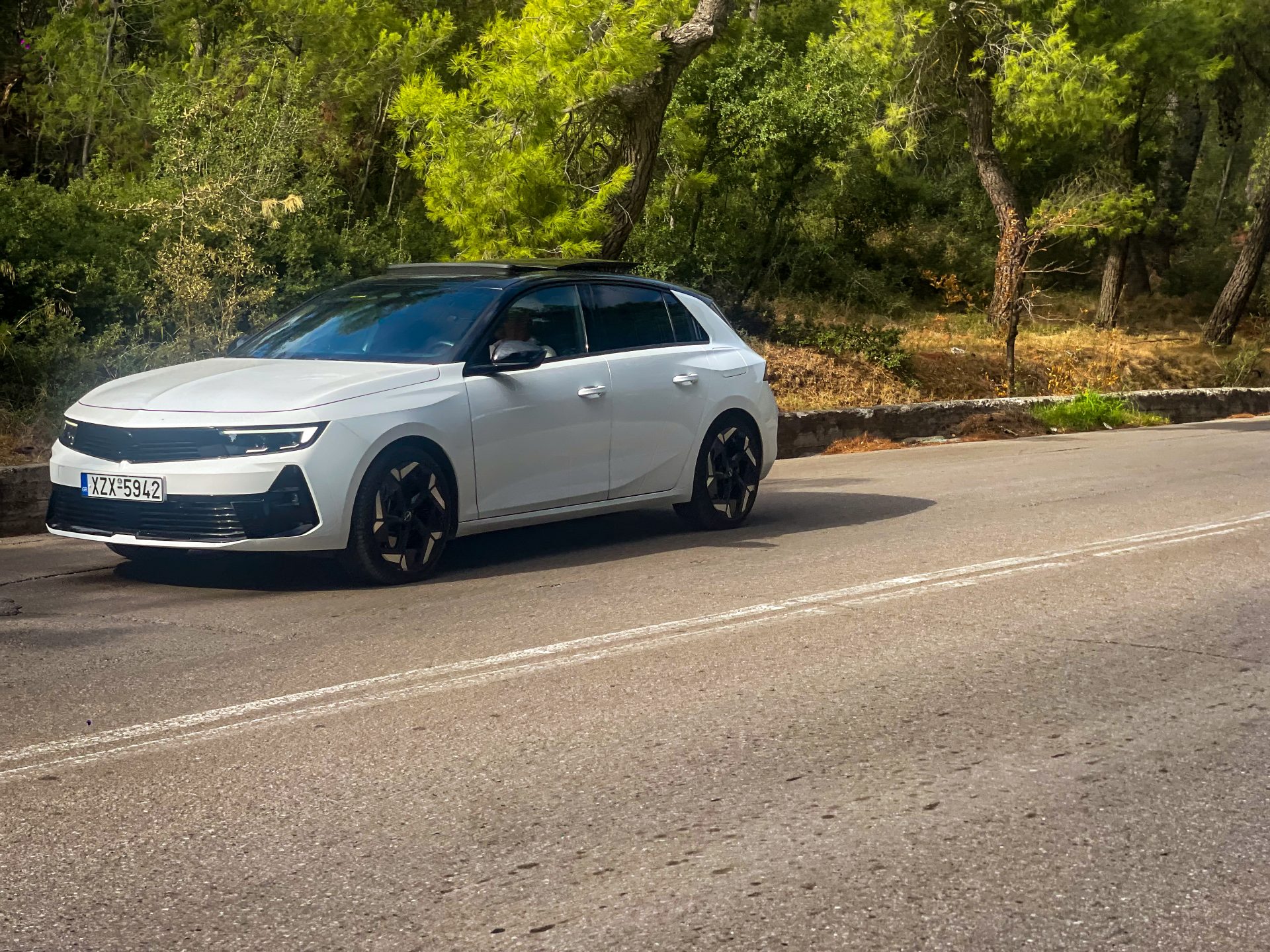
The sophisticated and spicy exterior, which suggests that this is the top-of-the-range version of the Astra, promises dynamic handling. But is that the case? The answer will be given by the driving experience in every possible condition and network.

In the city drives like a conventional mid-size car, with relative agility but moderate peripheral visibility, which will not be a problem. An advantage is the ability to drive purely electrically within the urban environment, reducing consumption to zero.
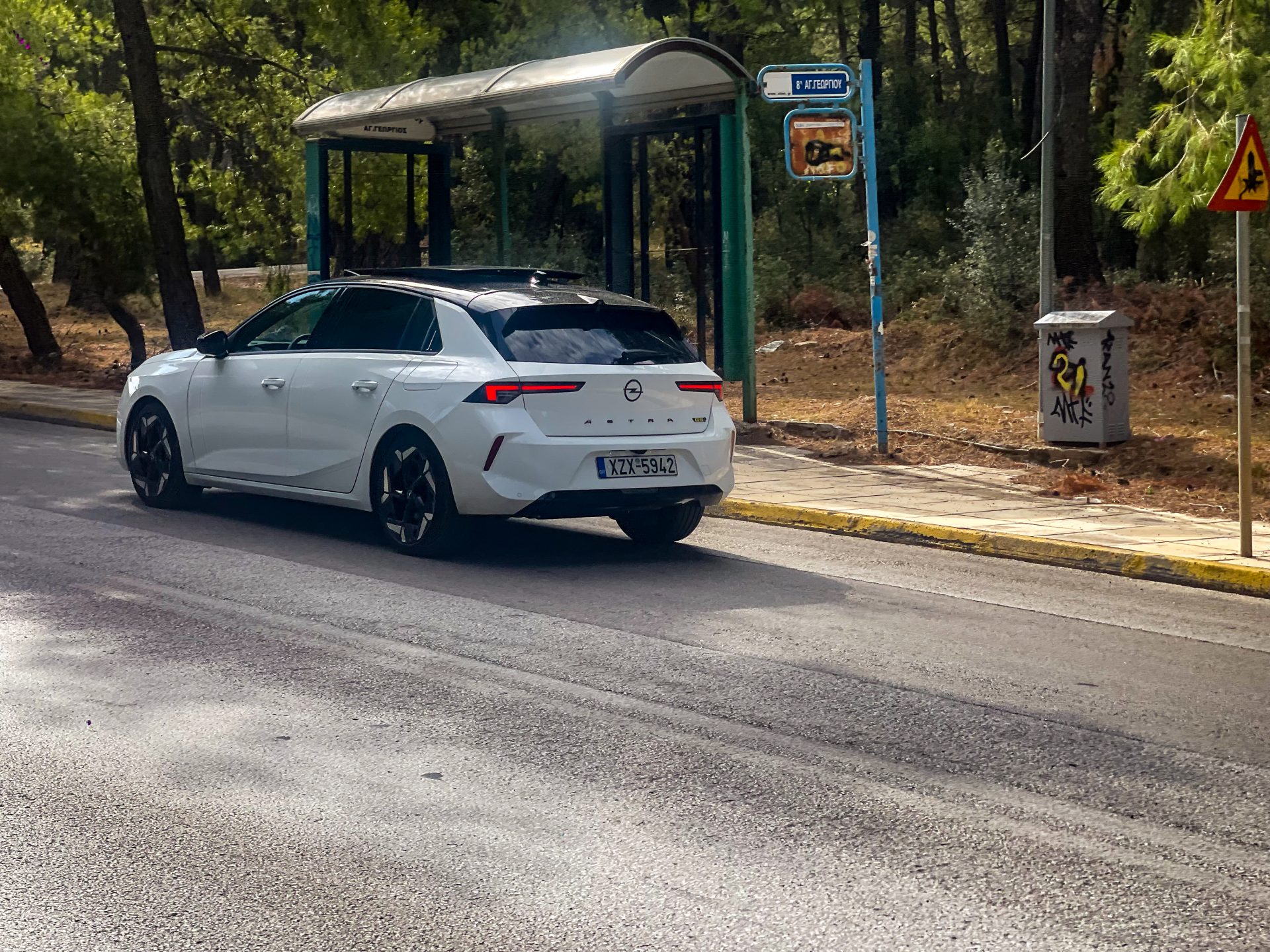
In the mountain and rural network reveals its points of differentiation with conventional Astra, achieving a more exciting driving experience. It's not just the increased power and torque that plays a role in this, but instead the whole setup of the car, starting with the suspension, which is made by Dutch Koni and features the advanced FSD (Frequency Selective Damping) shock absorbers, which intervene in real time and reliably in any given situation. So, on the road it grips very well, eliminating cornering gradients and allowing for oversteer, always in total safety. Despite its harshness, the suspension is not perceived negatively by the passengers, absorbing road imperfections. The brakes are also exclusive, with an upgraded and more direct braking system, just as there are improvements to the steering, offering greater precision in handling the car. However, it is by no means sporty, but stops at the edge of dynamic driving..., essentially building a GT version!
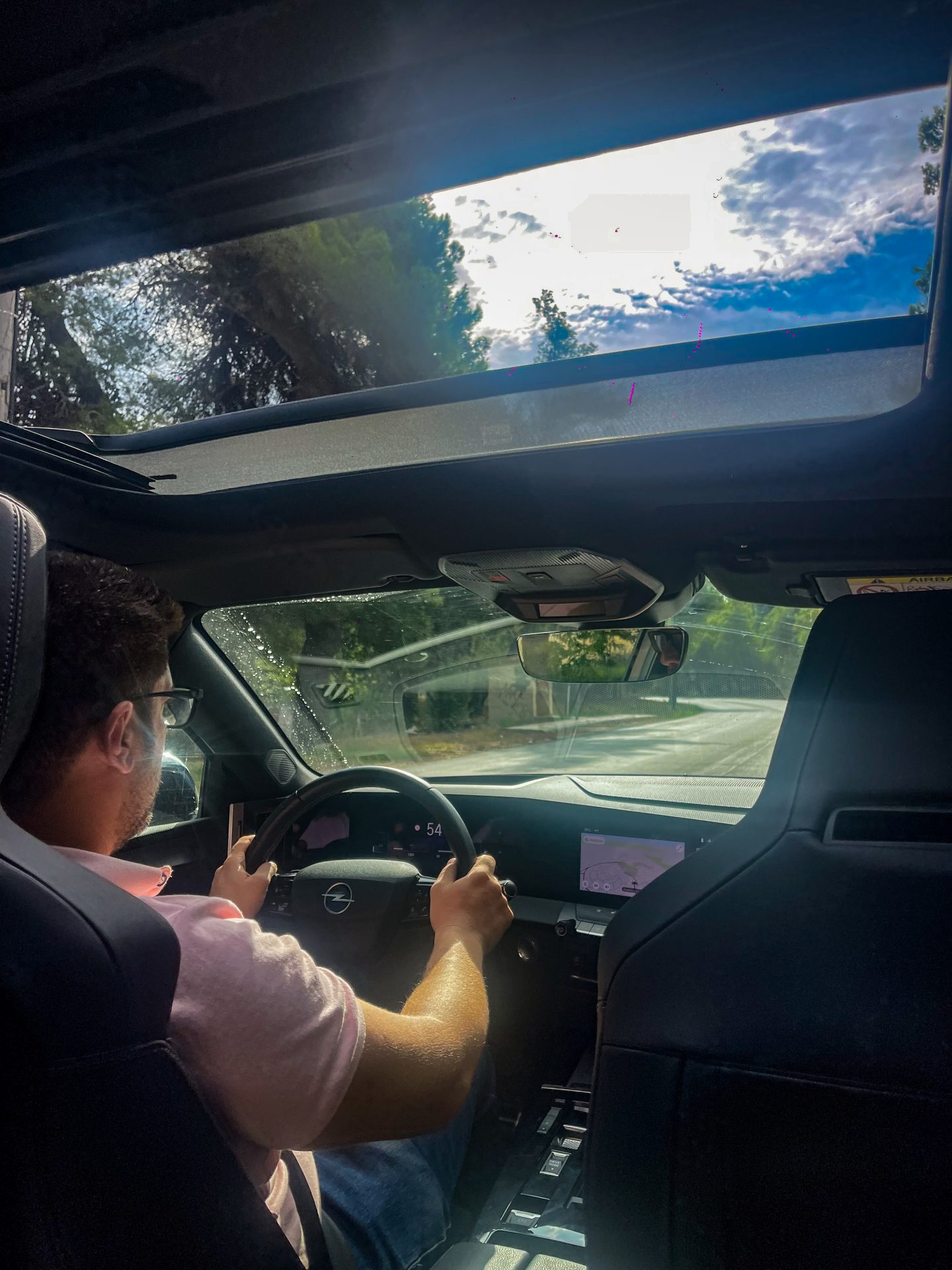
On the motorway exudes dynamism, with top-quality rolling and sound insulation, even at very high speeds, offering passengers a pleasant journey, following the "autobahn proof" philosophy.
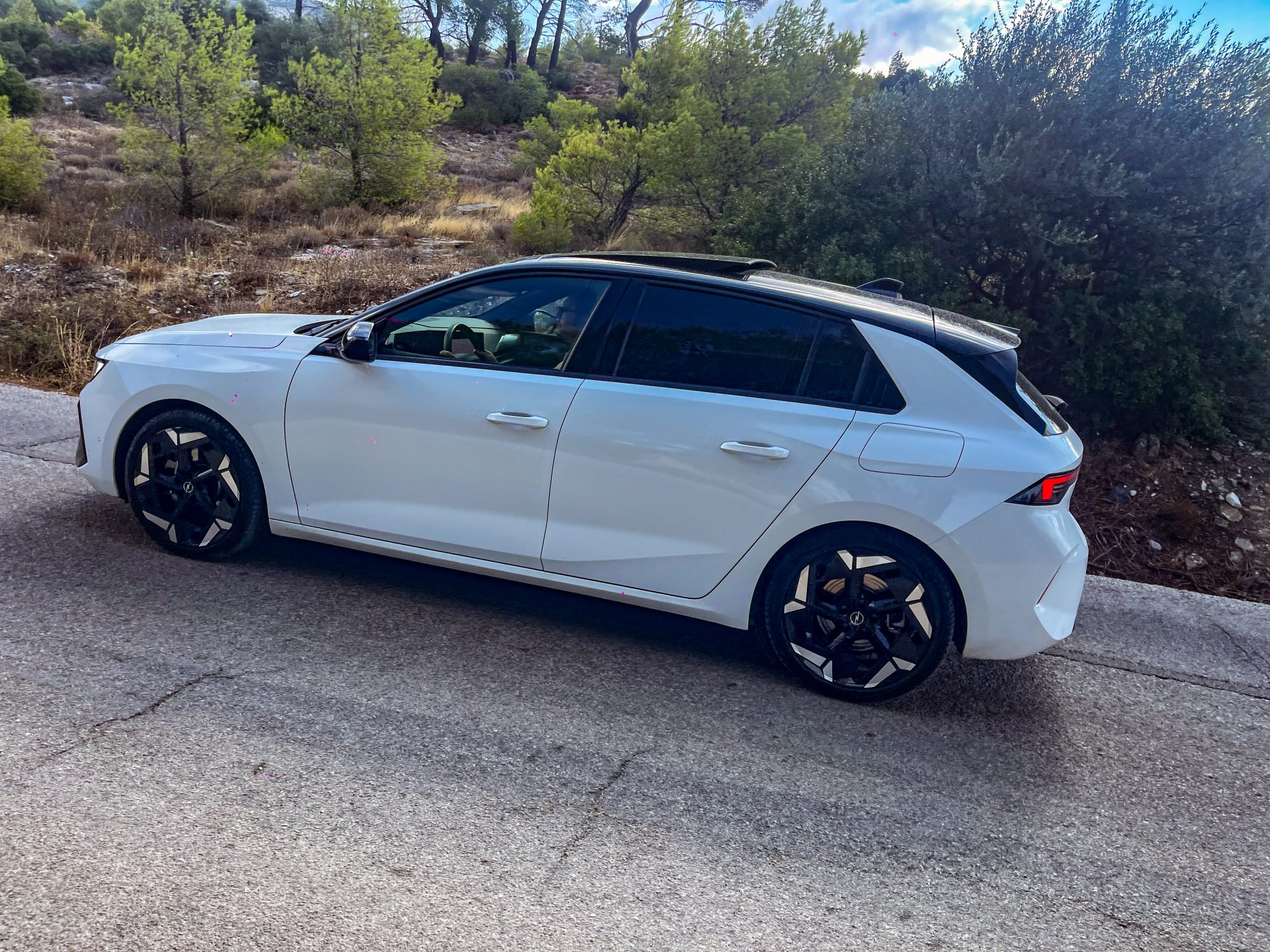
General is at all times a well-balanced driving car, emphasizing dynamism and safety.
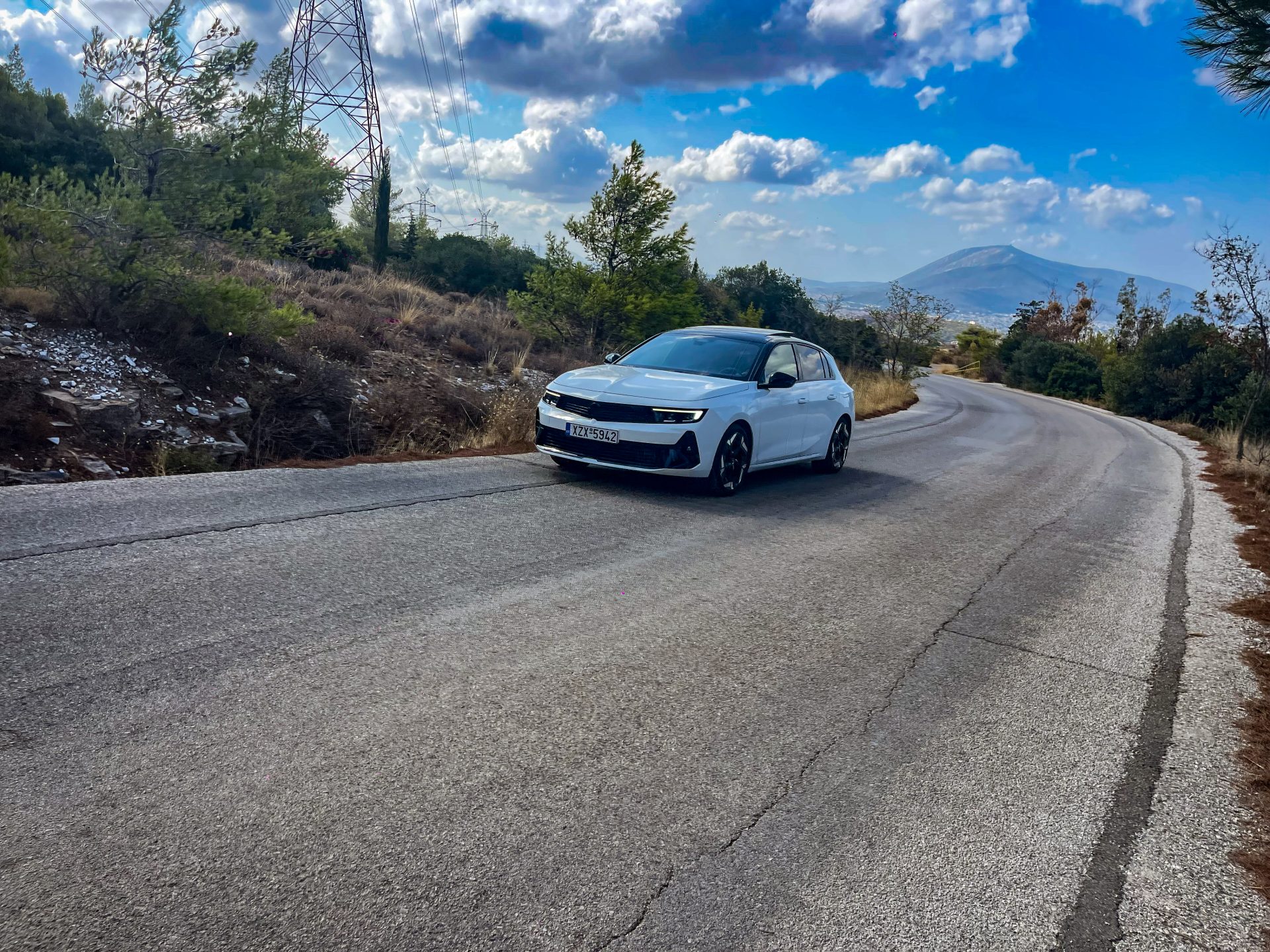
It has 3 driving profiles. The all-electric, ideal for city driving and for speeds up to 135 km/h. The pure electric range is around 50 kilometres, although the WLTP standard gives 64. The Hybrid program is the most user and everyday friendly, combining performance and economy. Finally, the Sport option changes the engine mapping, leaving all the power available. At the same time, the suspension and steering are stiffened, emphasising its dynamic character.
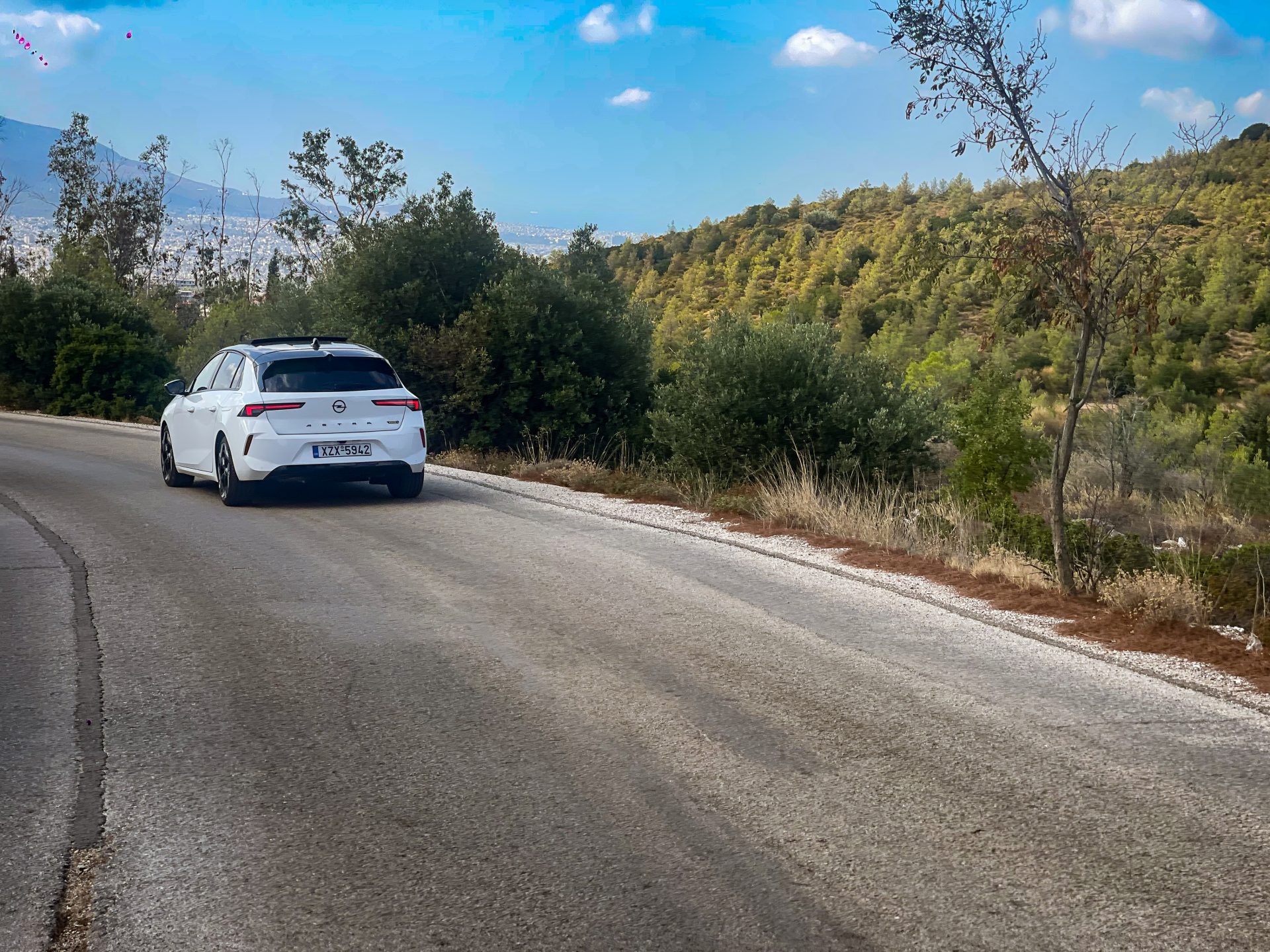
By using e-Save, the battery is isolated and the petrol engine acts as a generator, charging it relatively quickly. However, in terms of consumption it is prohibitive, having reached 11 litres/100 km.
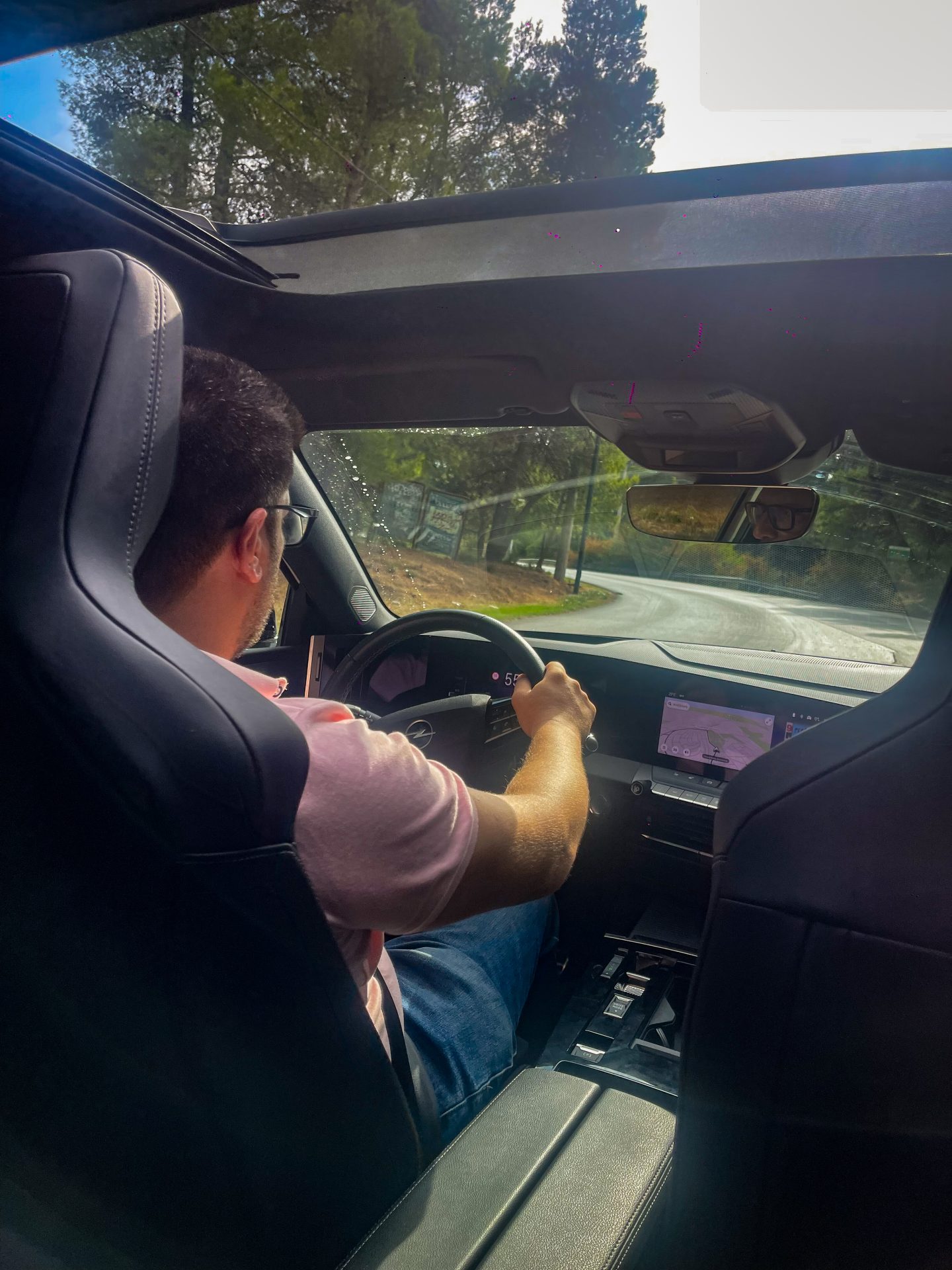
In particular, in terms of consumption, in hybrid mode and fully charged, the consumption is 1.2 litres per 100 km, as the electric motor is mainly used at a rate of 80%. When unloaded, it operates as a full hybrid, with fuel consumption between 6.5 and 7.2 litres/100 km, while in the sports version it rises to 8.5 litres/100 km.
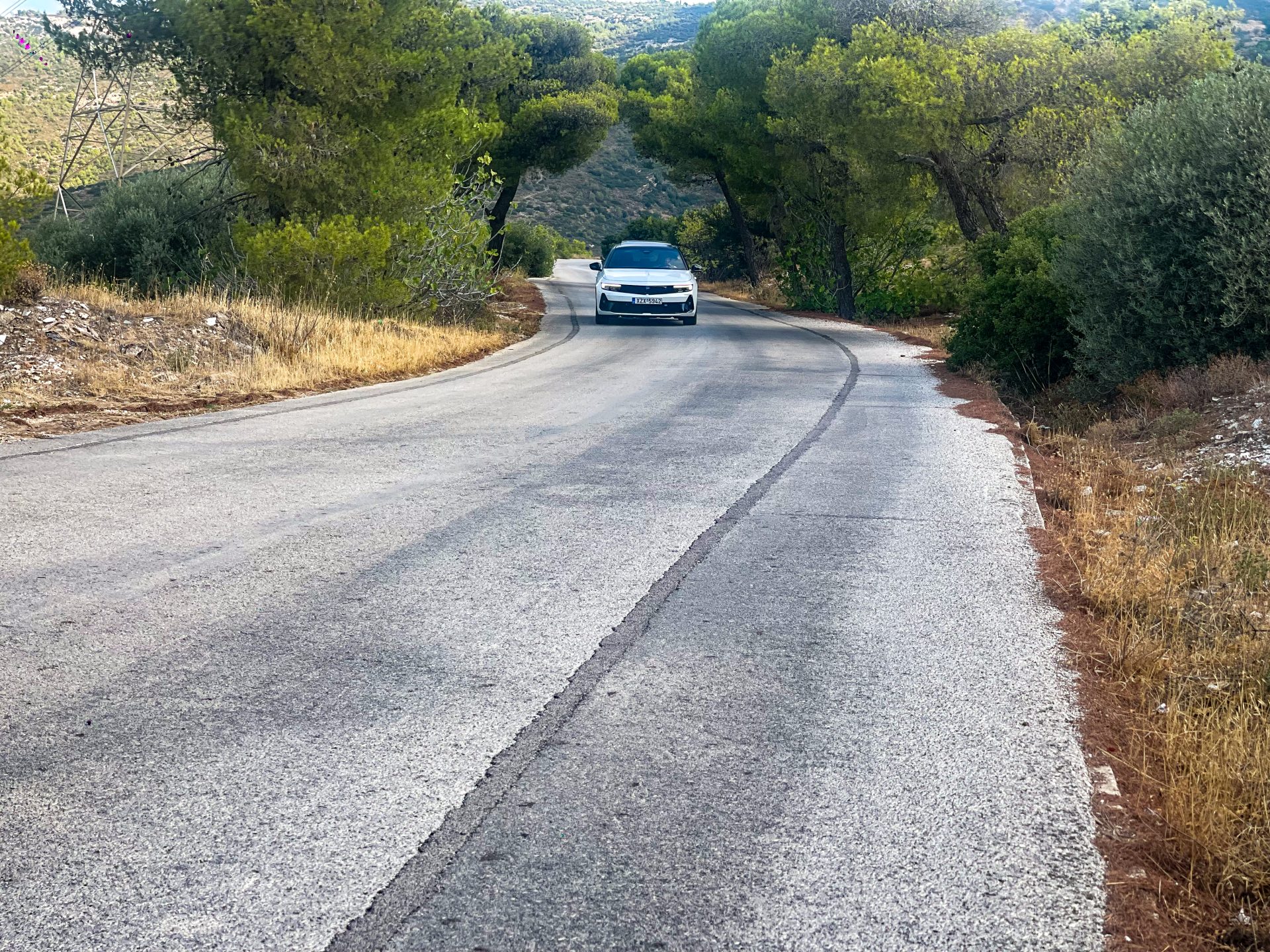
As far as for a full charge, it will take about two and a half hours on a 7.4 kW fast charger, while according to Opel it takes 5.5 hours on a 2.3 kW household outlet and 3.5+ hours on a 3.7 kW wallbox.
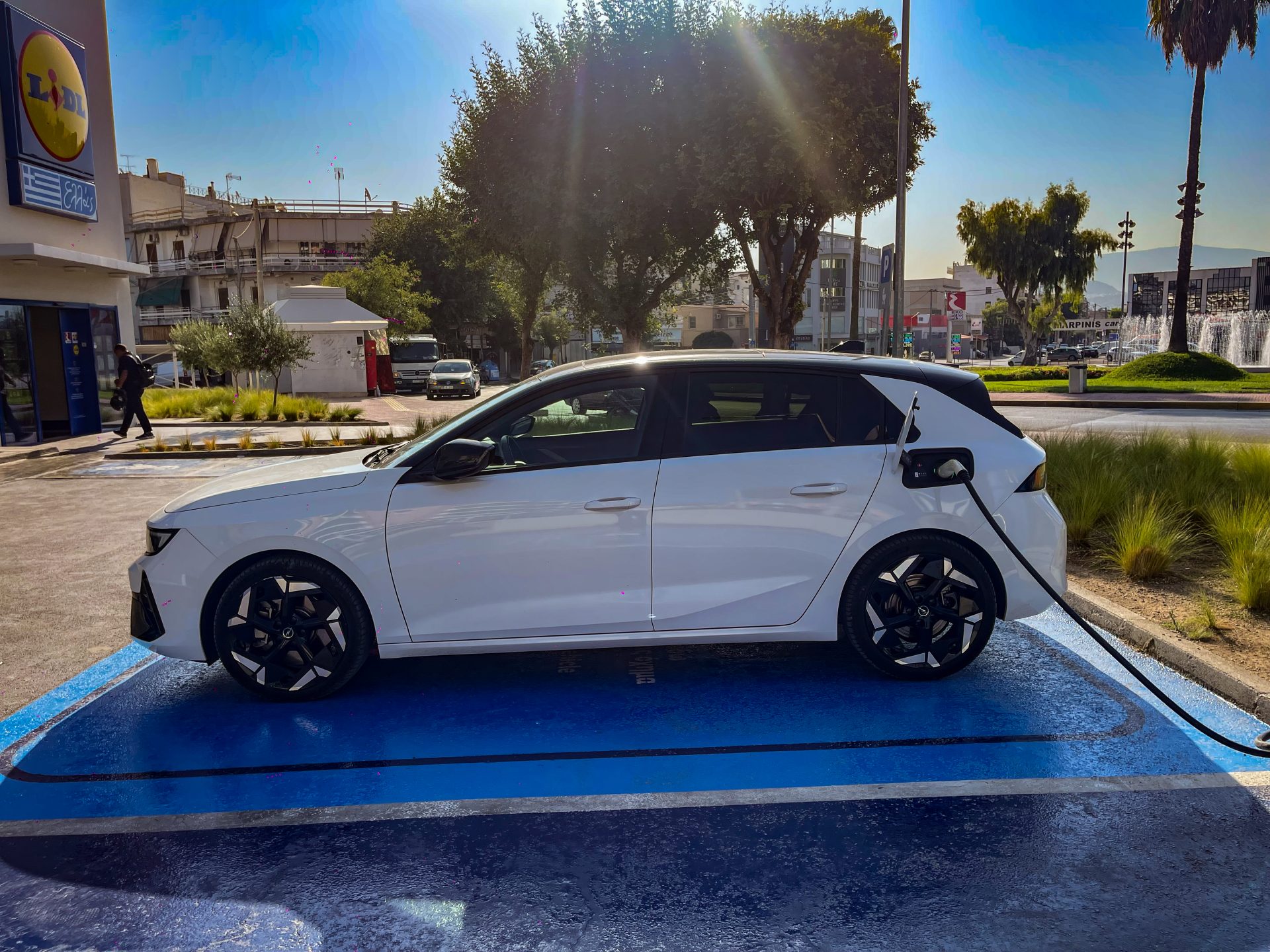
For dynamic characters
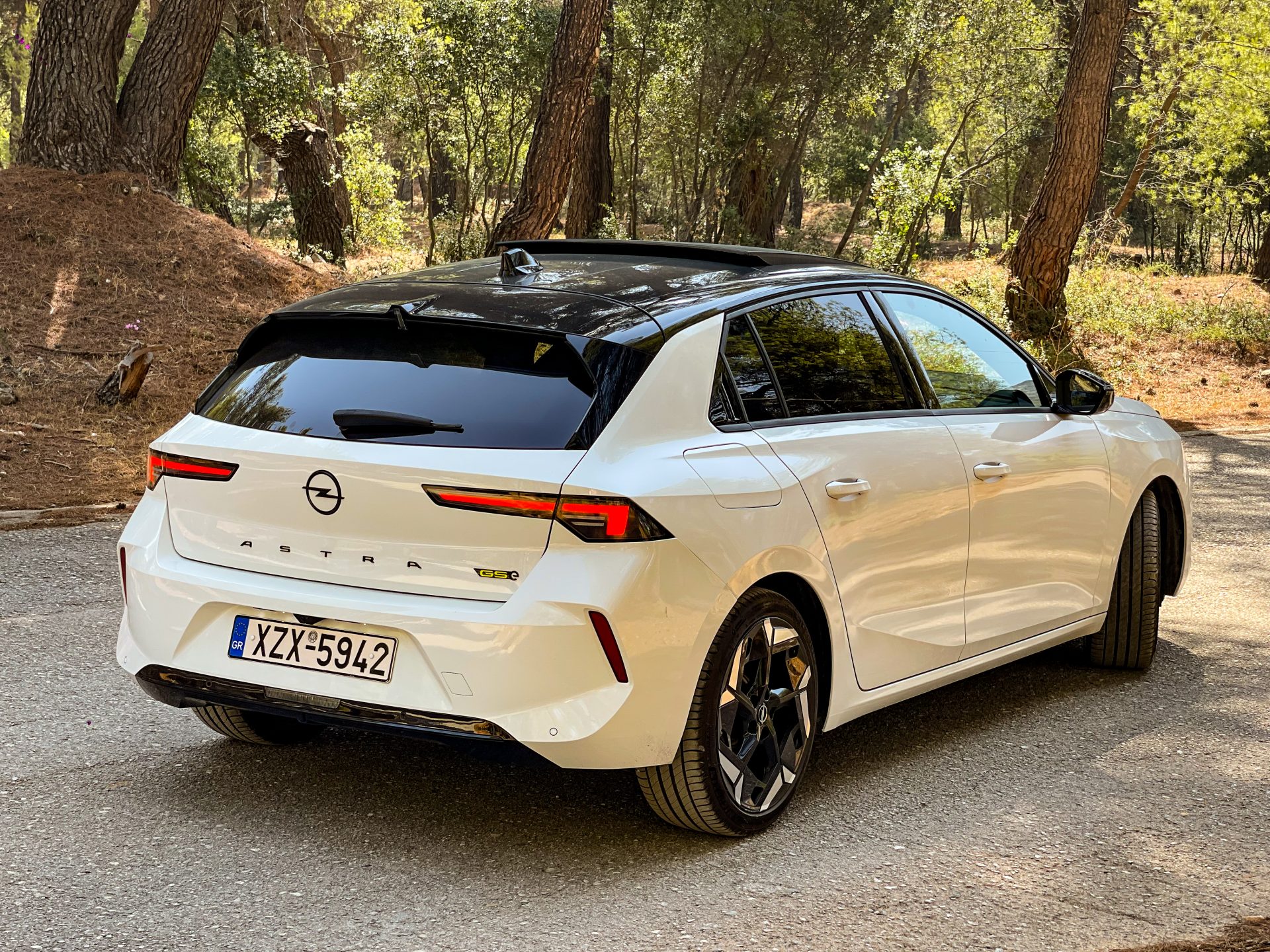
The Opel Astra GSe completes the range of the popular midsize hatchback with a dynamic version that is aimed at more restless young family drivers for whom driving pleasure and dynamic handling are prerequisites for choosing a car. But also for young age groups, who have not yet started a family and want a dynamic car with sporty credentials. The Astra GSe is a car for dynamic characters!
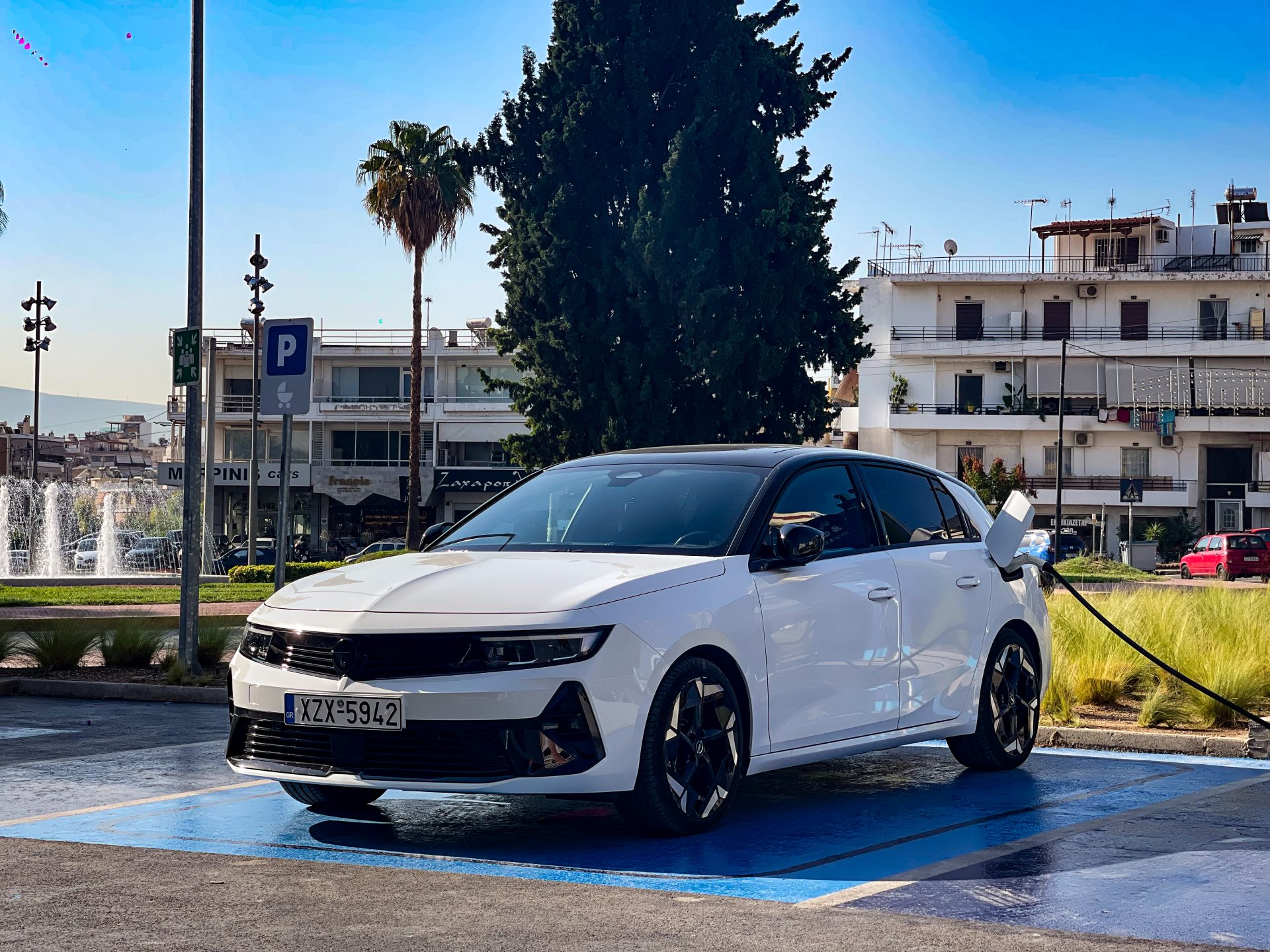
Pinched
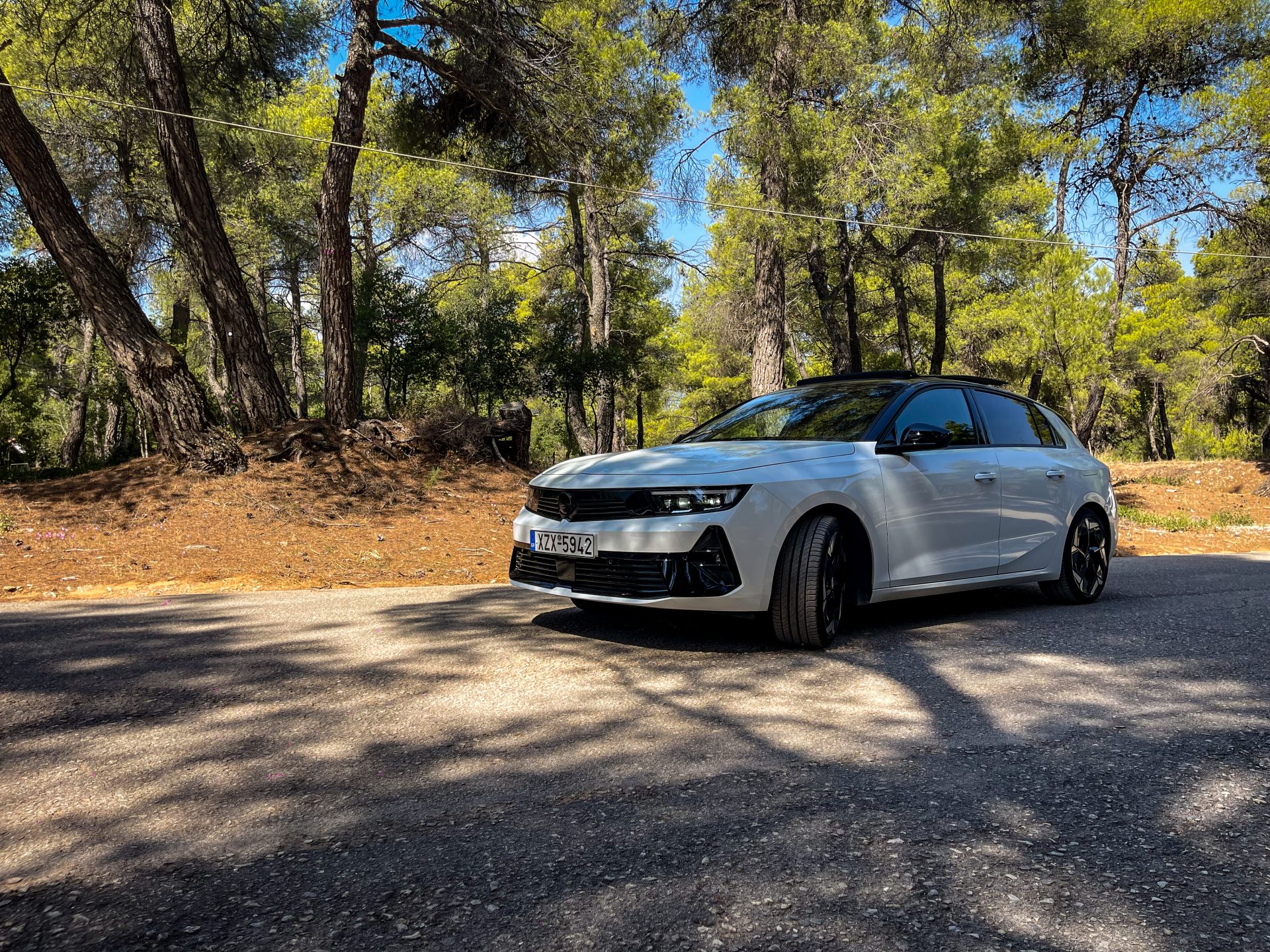
For those interested the price of the top Opel Astra GSe is predictably stingy and reaches 51.600€ in the price lists of the German company.
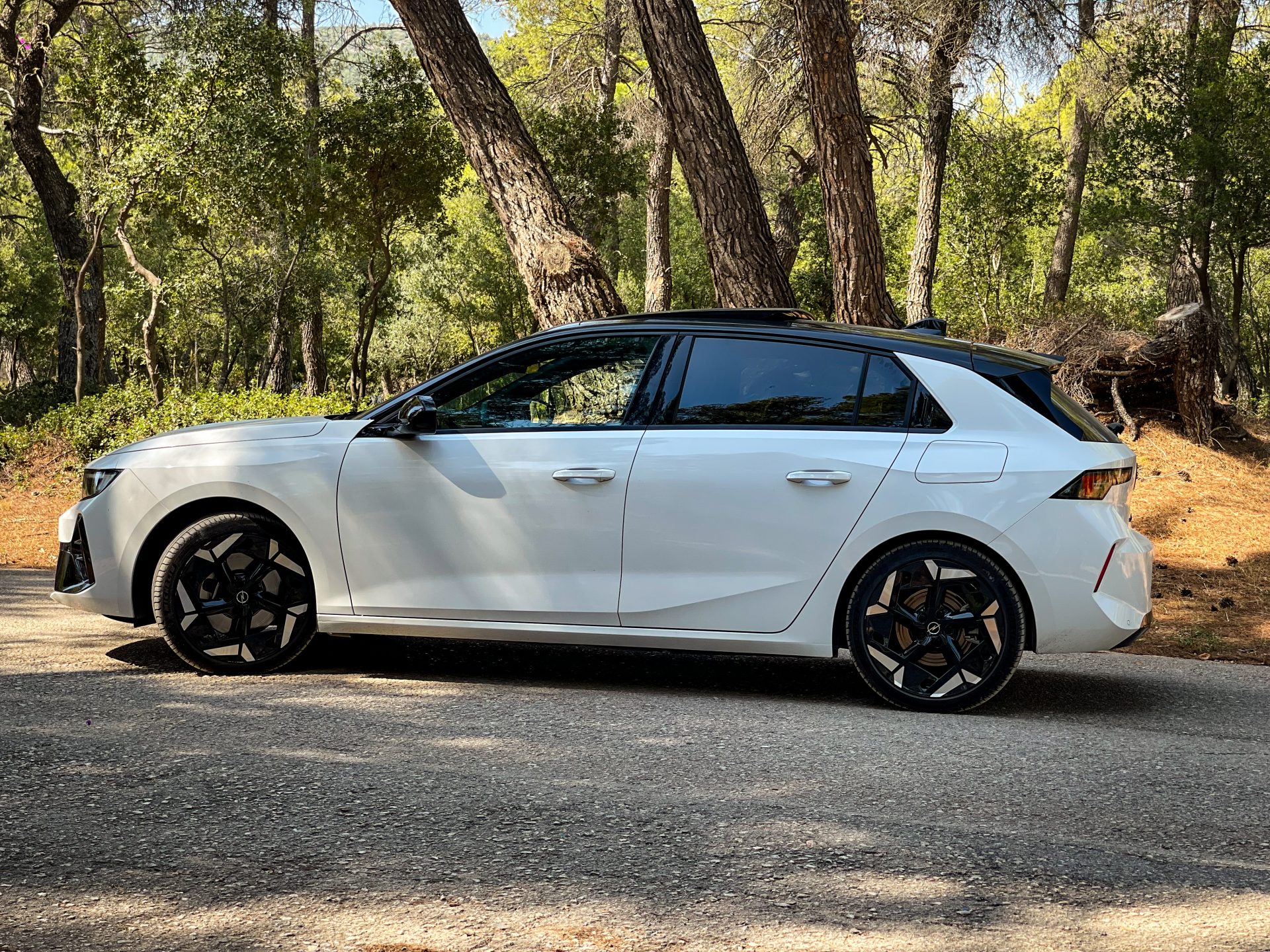
Technical characteristics
AMAXOMA |
|
Press |
Hatchback |
Seats |
5 |
Doors |
5 |
CONSUMPTION - EMISSIONS - SUBSIDIES |
|
Average combined fuel consumption, (WLTP) |
1.1-1.2 l/100 km |
CO2 emissions (WLTP) |
25-26 g/km |
Fuel type |
petrol / electricity |
Acceleration 0 - 100 km/h |
7.5 sec |
Maximum speed |
235 km/h |
Exhaust Gas Specifications |
Euro 6e |
Weight/power ratio |
7.2 kg/Hp, 138.2 Hp/tonne |
Weight/torque ratio |
4.5 kg/Nm, 221.1 Nm/tonne |
ENGINE TOTAL |
|
INTERNAL COMBUSTION ENGINE |
|
Power |
181 Hp @ 6000 rpm. |
Power per litre of displacement |
113.3 Hp/l |
Torque |
250 Nm @ 1750 rpm |
Engine layout |
Forward, transverse |
Engine model/code |
EP6FADTXHPD |
Engine casing |
1598 cm3 |
Number of cylinders |
4 |
Engine configuration |
In series |
Number of valves per cylinder |
4 |
Fuel injection system |
Direct spraying |
Engine suction |
Turbocharger , Intercooler |
Engine oil capacity |
4.3 l |
ELECTRIC MOTOR |
|
Power of the electric motor |
110 Hp @ 2500 rpm. |
Torque |
320 Nm @ 500-2500 S.A.L. |
Electric motor position |
Between the internal combustion engine and the gearbox |
TOTAL |
|
Total system power |
225 hp |
System torque |
360 Nm |
BATTERY |
|
Gross battery capacity |
12.4 kWh |
Battery technology |
Lithium-ion (Li-Ion) |
Battery position |
Under the rear seats |
Electric range (WLTP) |
63-64 km |
Average energy consumption (WLTP) |
15.0-15.3 kilowatt-hour/100 km |
Maximum speed (electric only) |
135 km/h |
HEIGHT AND WEIGHT |
|
Weight |
1628 kg |
Maximum payload |
522 kg |
Minimum volume of luggage space |
352 l |
Maximum volume of luggage space |
1268 l |
Fuel tank capacity |
42 l |
Maximum load |
80 kg |
Permissible towing capacity with brakes (12%) |
1450 kg |
Maximum support load |
75 kg |
DIMENSIONS |
|
Length |
4374 mm |
Width |
1860 mm |
Height |
1442-1472 mm |
Wheelbase |
2675 mm |
Front track |
1551-1559 mm |
Back trace |
1546-1554 mm |
Forward prop |
906 mm |
Back prop |
793 mm |
Minimum turning diameter (turning diameter) |
10.51 m |
ARCHITECTURE |
|
Movement |
On the front wheels |
Number of ratios and type of gearbox |
8 speeds, automatic transmission |
Front brakes |
Ventilated trays |
Rear brakes |
Discs |
Auxiliary systems |
ABS (Anti-lock Braking System) |
Type of address |
Management chukrania (with teeth) |
Steering system |
Electric Steering Wheel |
Wheels |
225/40 R18 |


